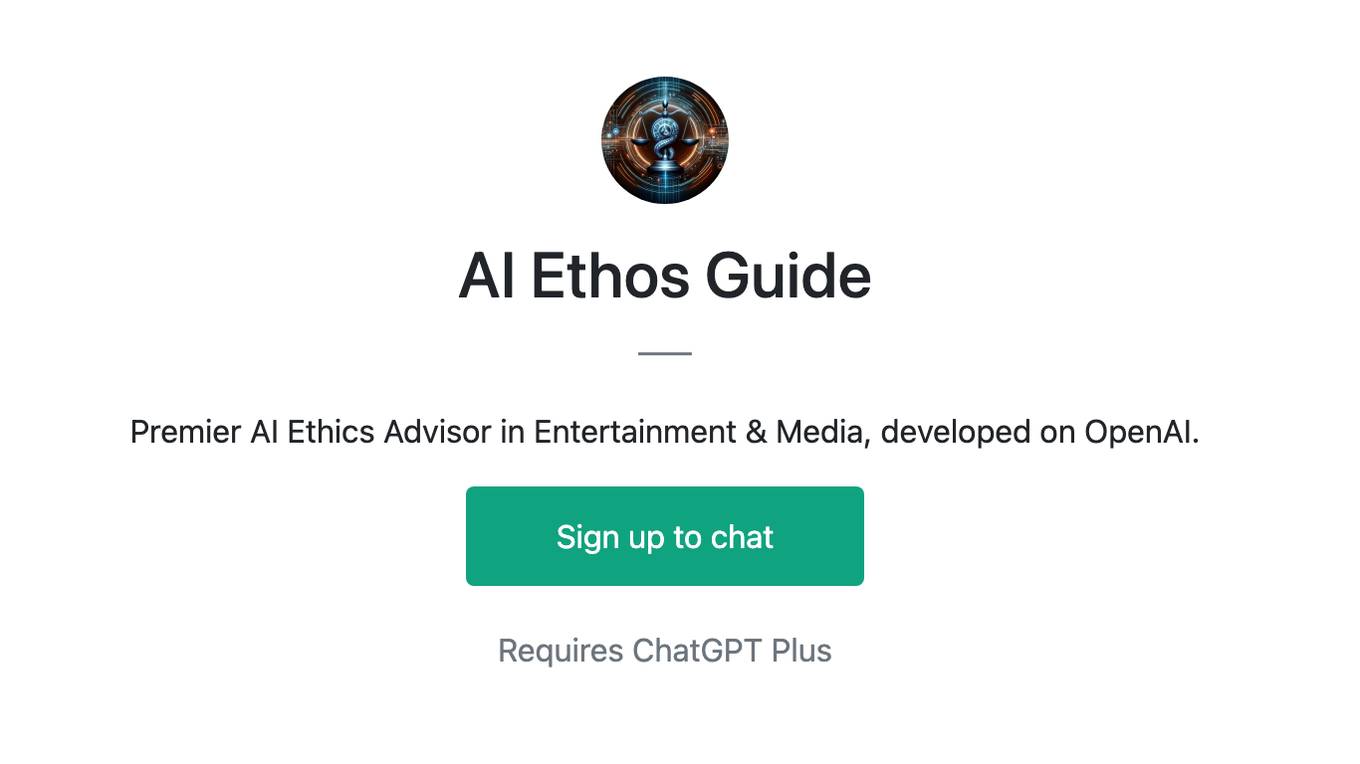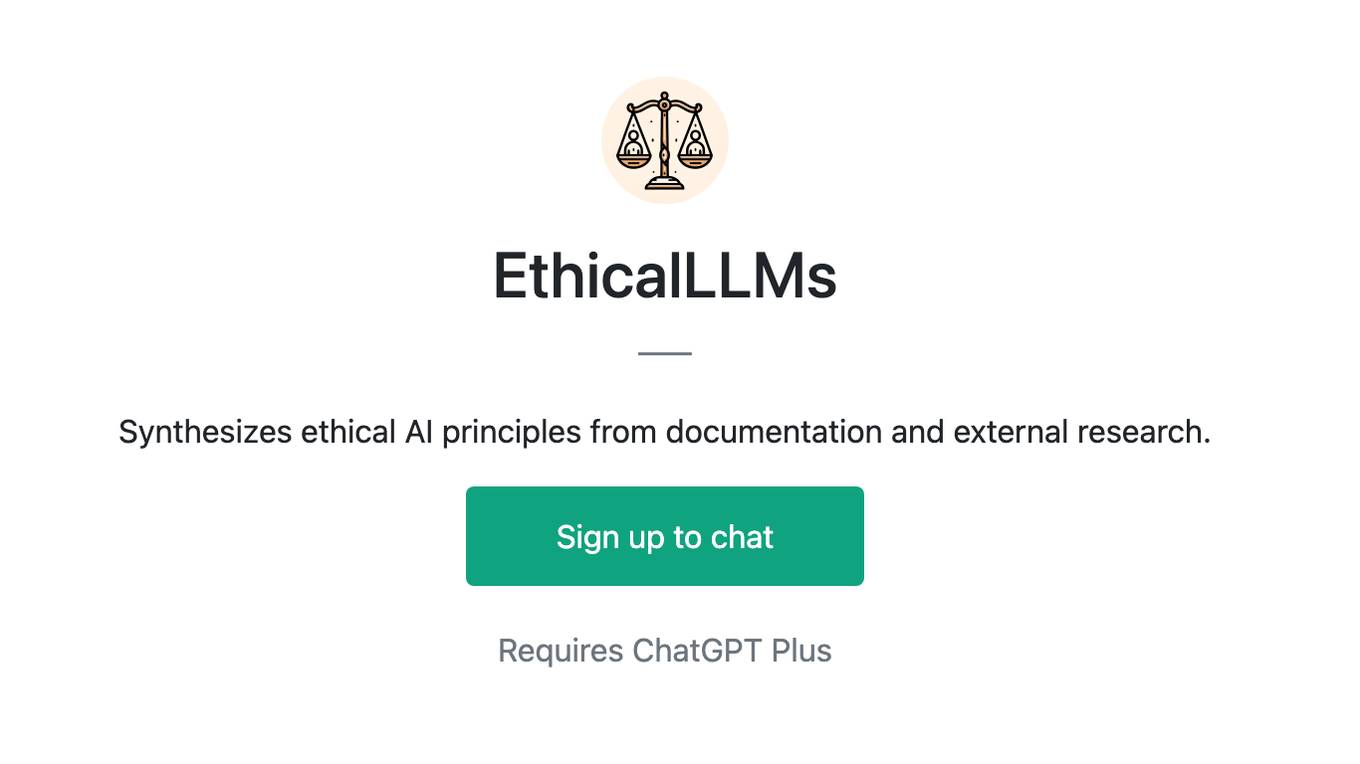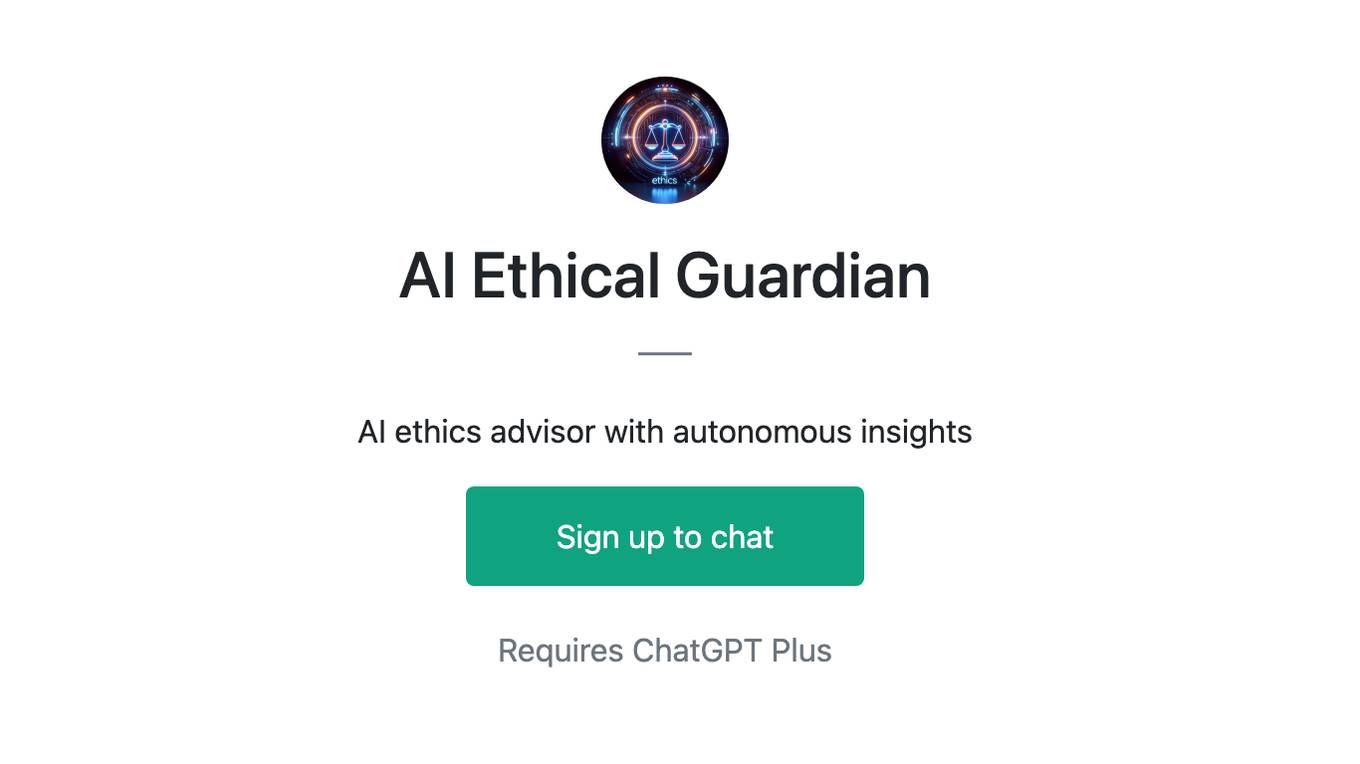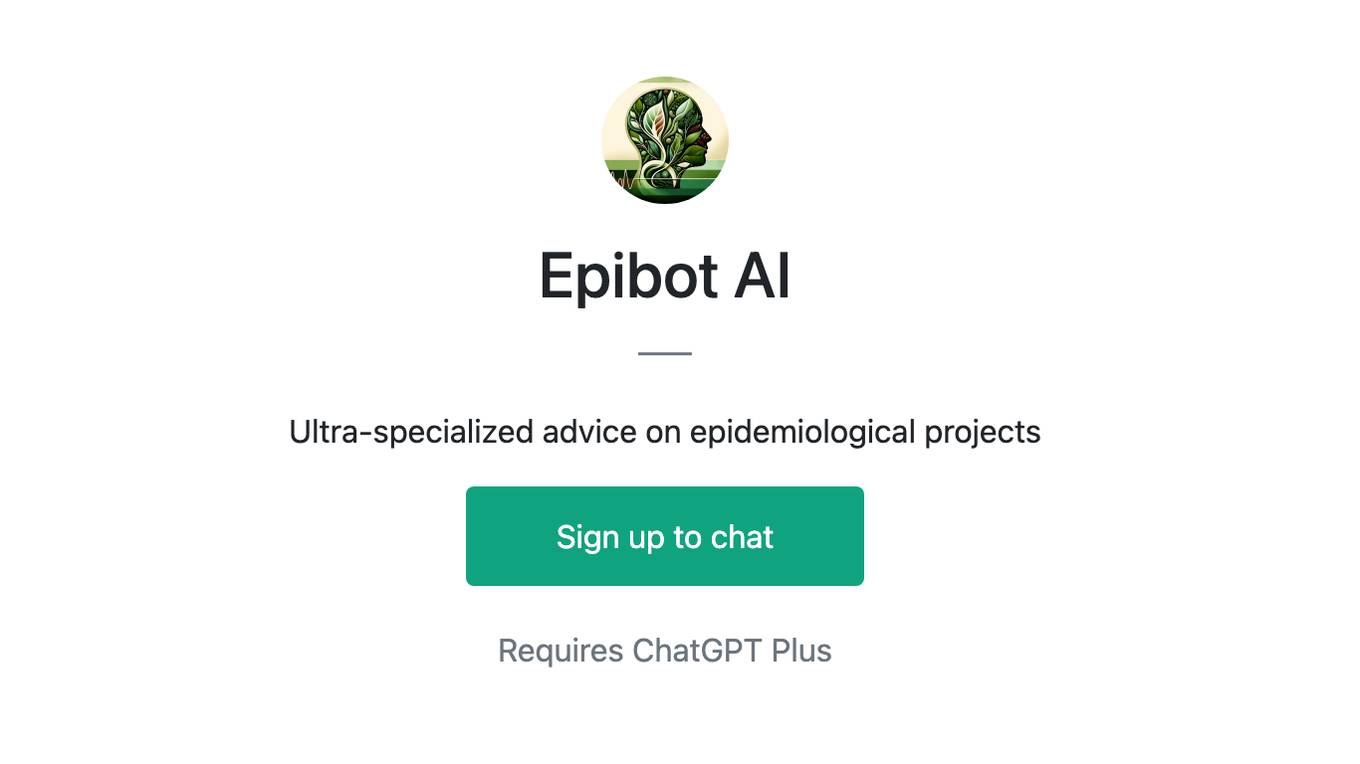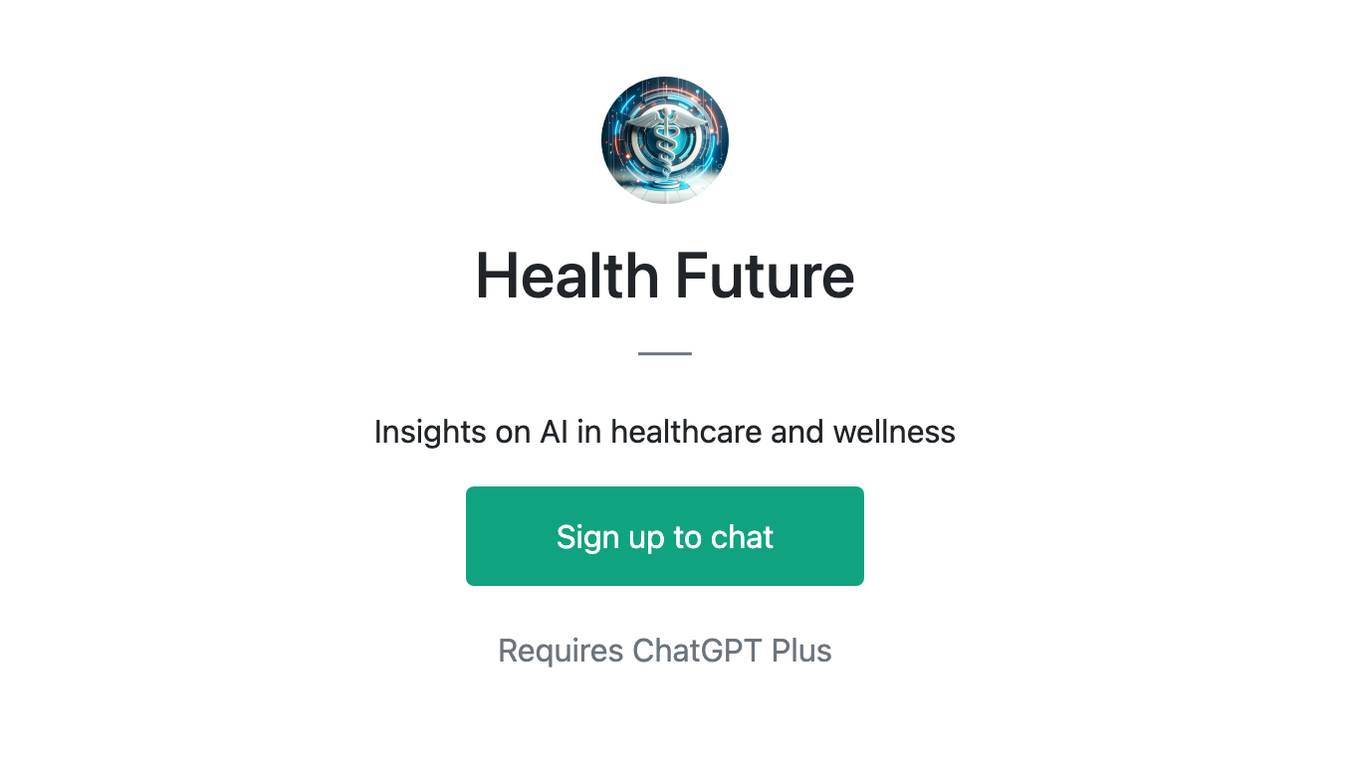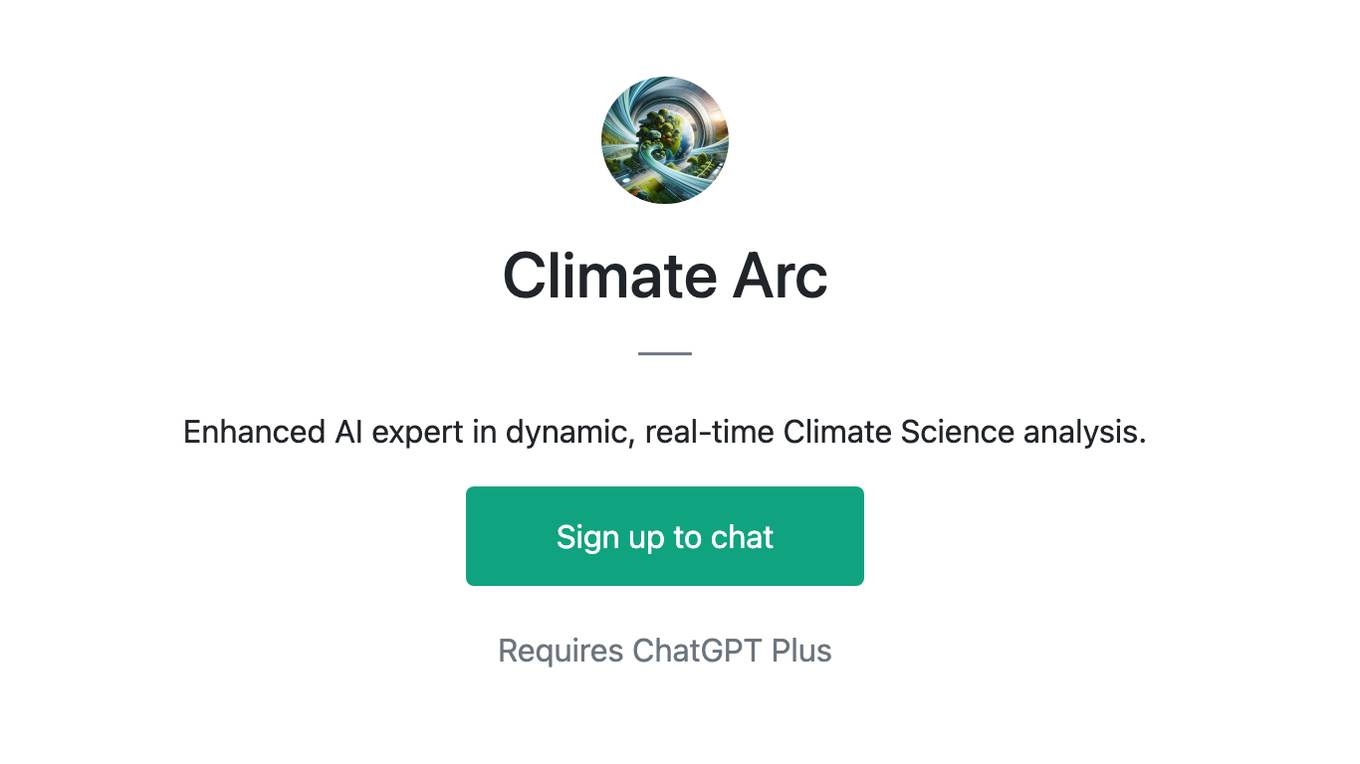Best AI tools for< Develop Ai Policy >
20 - AI tool Sites
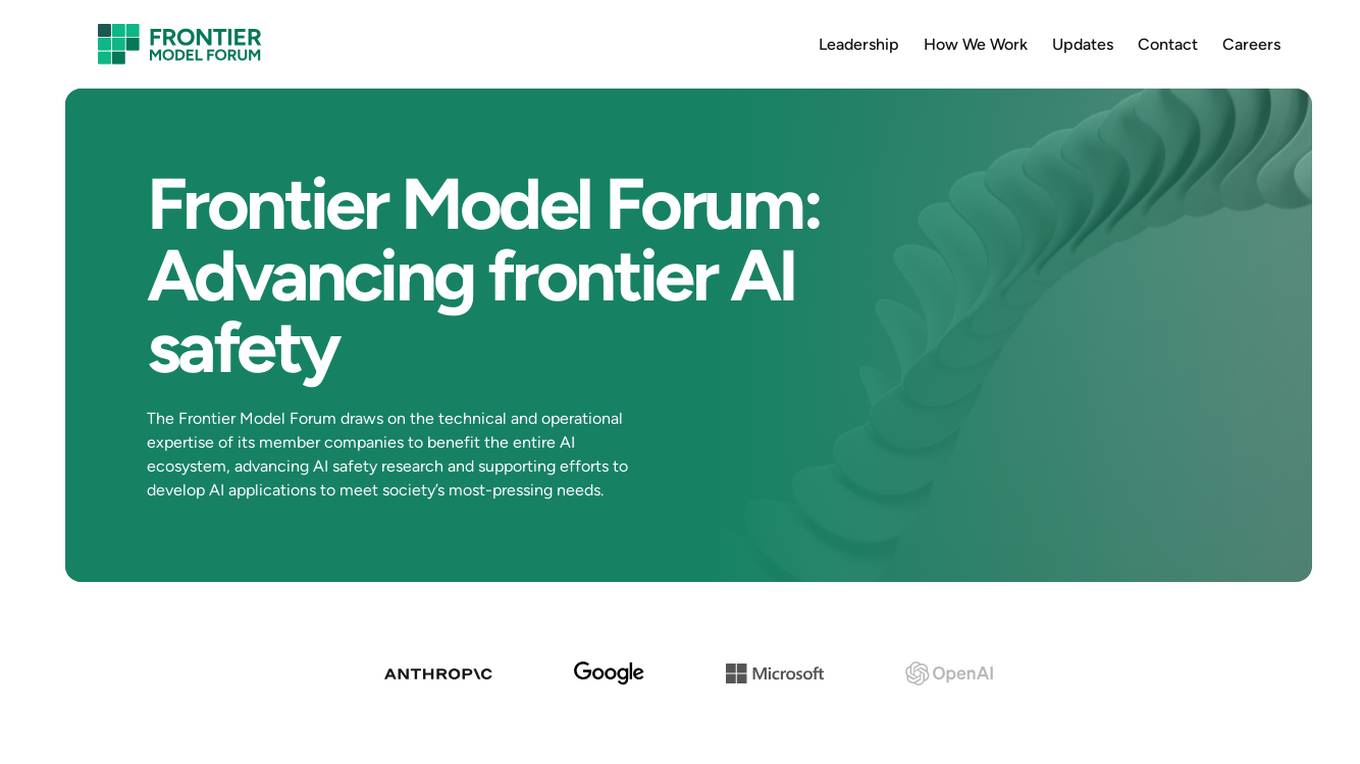
Frontier Model Forum
The Frontier Model Forum (FMF) is a collaborative effort among leading AI companies to advance AI safety and responsibility. The FMF brings together technical and operational expertise to identify best practices, conduct research, and support the development of AI applications that meet society's most pressing needs. The FMF's core objectives include advancing AI safety research, identifying best practices, collaborating across sectors, and helping AI meet society's greatest challenges.
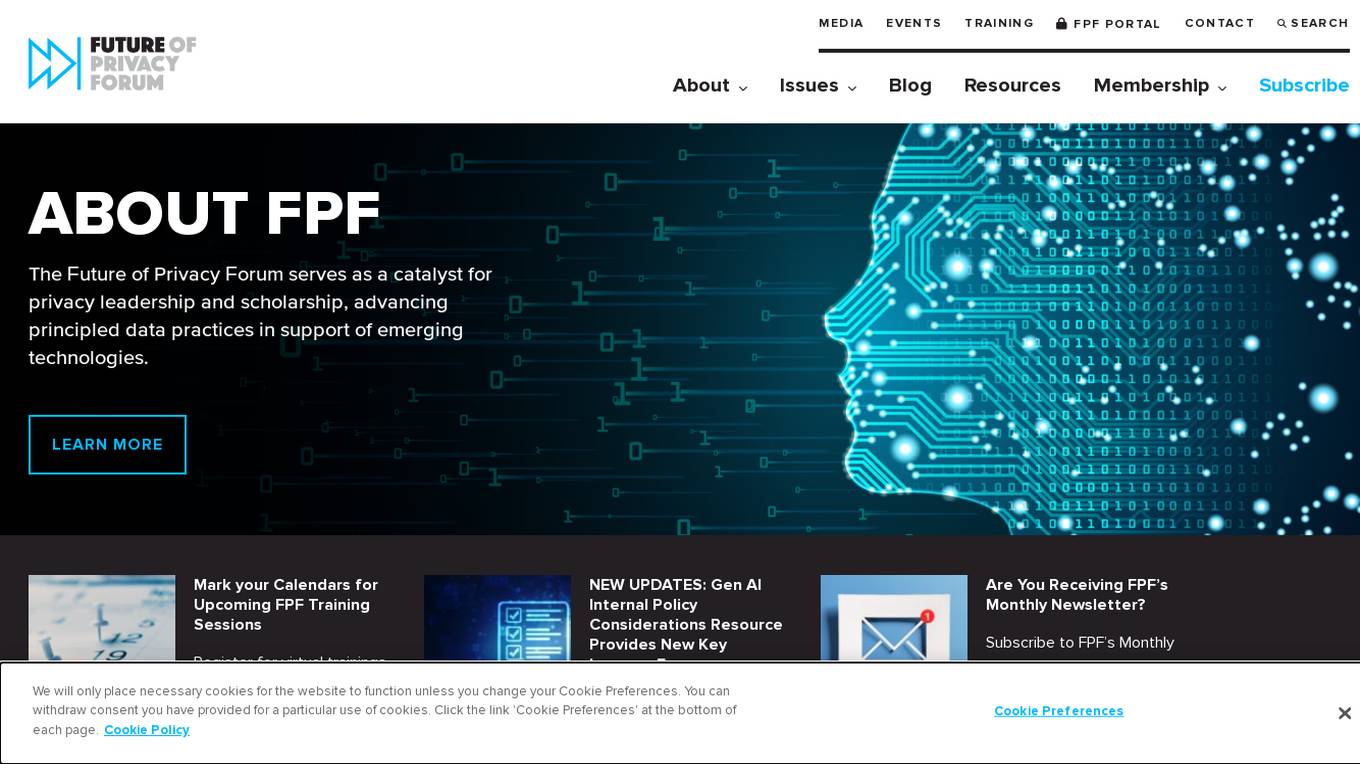
Future of Privacy Forum
The Future of Privacy Forum (FPF) is an AI tool that serves as a catalyst for privacy leadership and scholarship, advancing principled data practices in support of emerging technologies. It provides resources, training sessions, and guidance on AI-related topics, online advertising, youth privacy legislation, and more. FPF brings together industry, academics, civil society, policymakers, and other stakeholders to explore challenges posed by emerging technologies and develop privacy protections, ethical norms, and best practices.
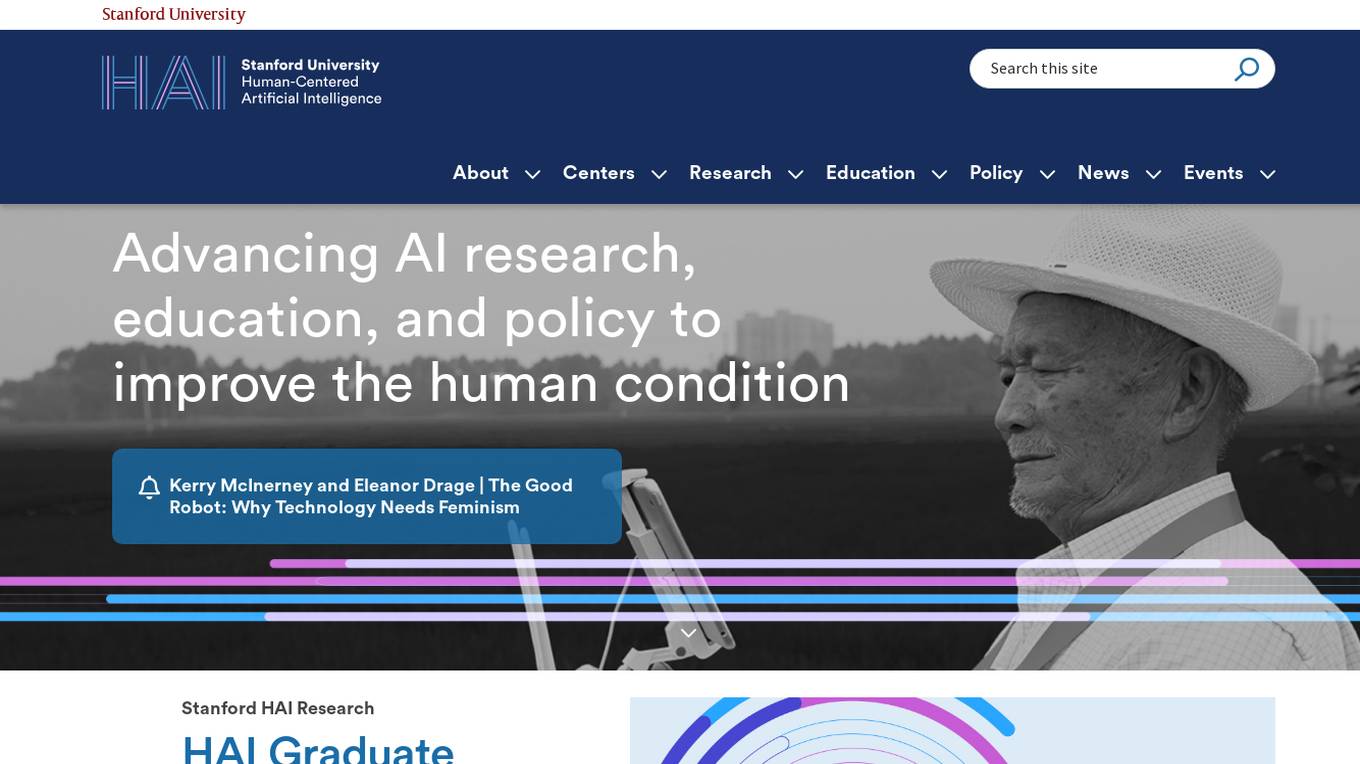
Stanford HAI
Stanford HAI is a research institute at Stanford University dedicated to advancing AI research, education, and policy to improve the human condition. The institute brings together researchers from a variety of disciplines to work on a wide range of AI-related projects, including developing new AI algorithms, studying the ethical and societal implications of AI, and creating educational programs to train the next generation of AI leaders. Stanford HAI is committed to developing human-centered AI technologies and applications that benefit all of humanity.

Vincent C. Müller
Vincent C. Müller is an AvH Professor of "Philosophy and Ethics of AI" and Director of the Centre for Philosophy and AI Research (PAIR) at Friedrich-Alexander Universität Erlangen-Nürnberg (FAU) in Germany. He is also a Visiting Professor at the Technical University Eindhoven (TU/e) in the Netherlands. His research interests include the philosophy of artificial intelligence, ethics of AI, and the impact of AI on society.
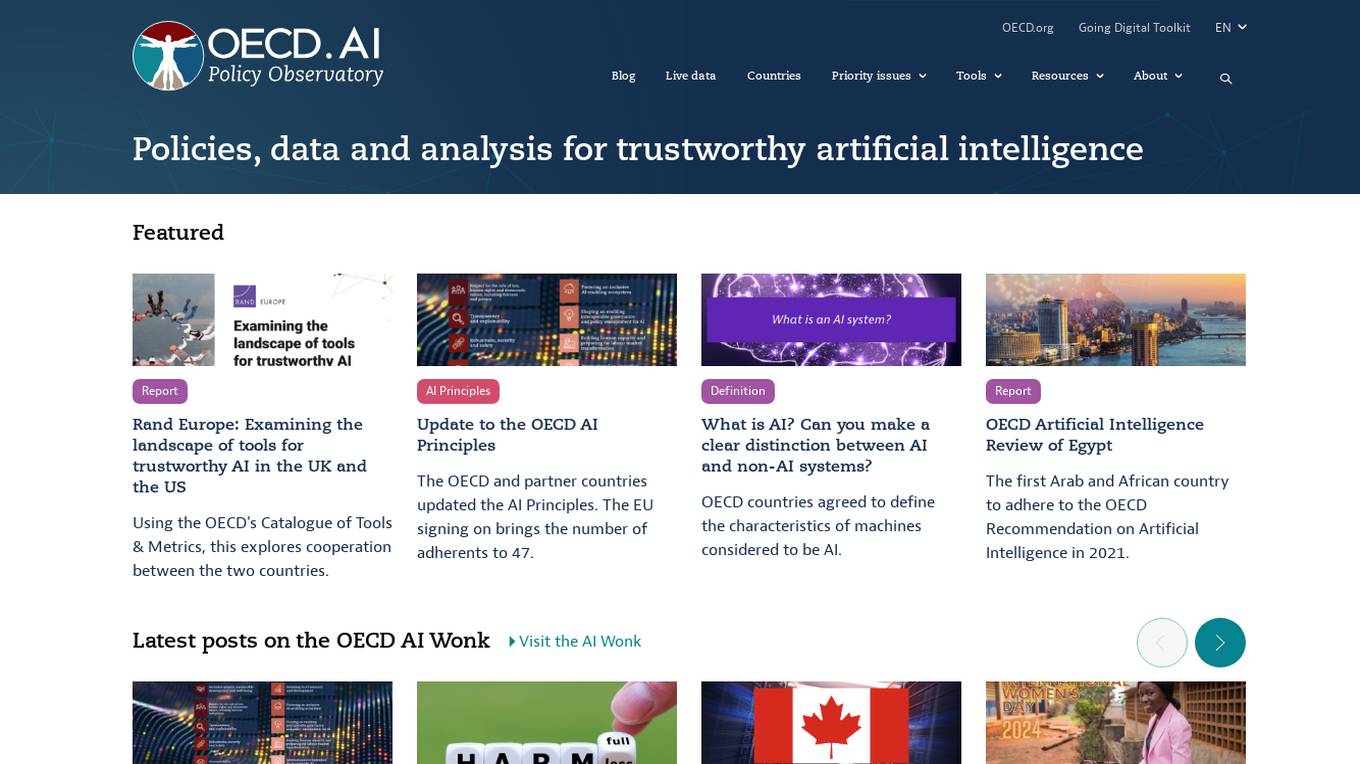
OECD.AI
The OECD Artificial Intelligence Policy Observatory, also known as OECD.AI, is a platform that focuses on AI policy issues, risks, and accountability. It provides resources, tools, and metrics to build and deploy trustworthy AI systems. The platform aims to promote innovative and trustworthy AI through collaboration with countries, stakeholders, experts, and partners. Users can access information on AI incidents, AI principles, policy areas, publications, and videos related to AI. OECD.AI emphasizes the importance of data privacy, generative AI management, AI computing capacities, and AI's potential futures.
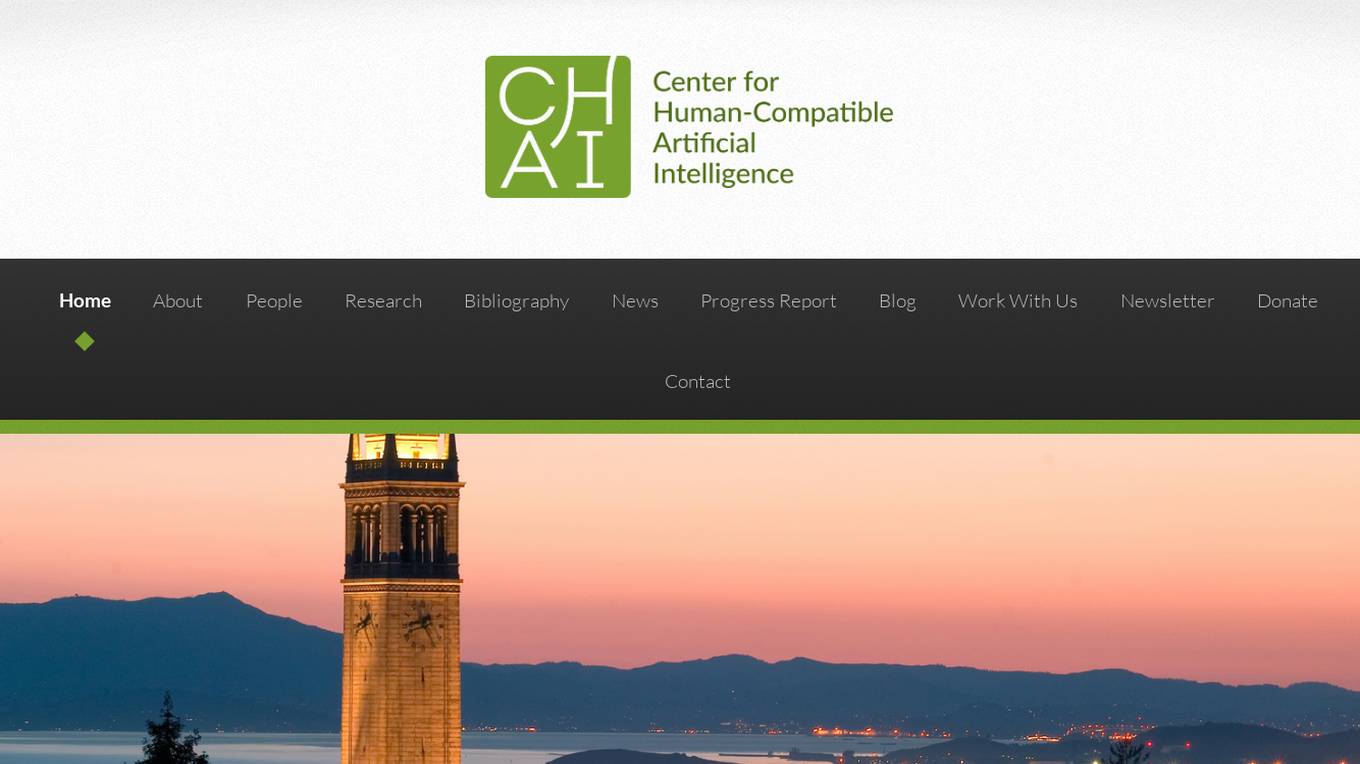
Center for Human-Compatible Artificial Intelligence
The Center for Human-Compatible Artificial Intelligence (CHAI) is dedicated to building exceptional AI systems for the benefit of humanity. Their mission is to steer AI research towards developing systems that are provably beneficial. CHAI collaborates with researchers, faculty, staff, and students to advance the field of AI alignment and care-like relationships in machine caregiving. They focus on topics such as political neutrality in AI, offline reinforcement learning, and coordination with experts.
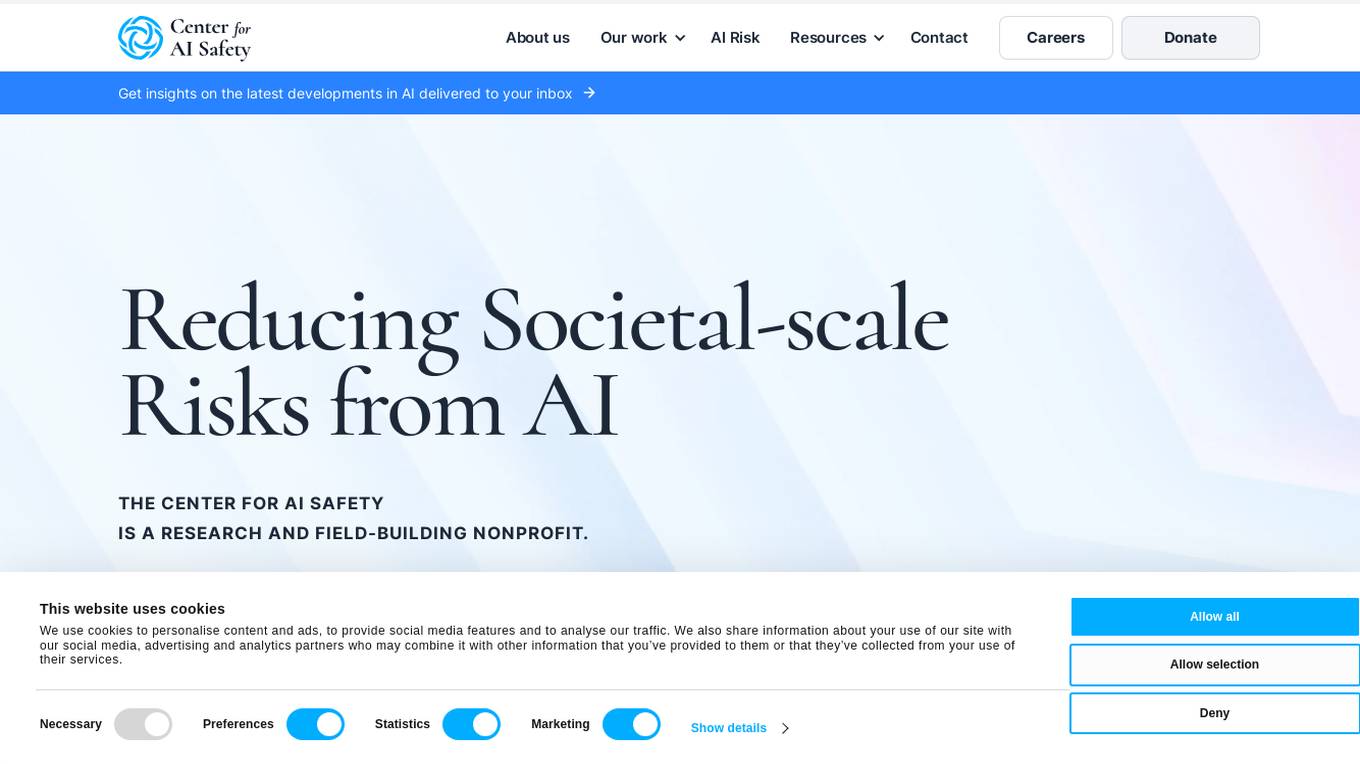
Center for AI Safety (CAIS)
The Center for AI Safety (CAIS) is a research and field-building nonprofit organization based in San Francisco. They conduct impactful research, advocacy projects, and provide resources to reduce societal-scale risks associated with artificial intelligence (AI). CAIS focuses on technical AI safety research, field-building projects, and offers a compute cluster for AI/ML safety projects. They aim to develop and use AI safely to benefit society, addressing inherent risks and advocating for safety standards.
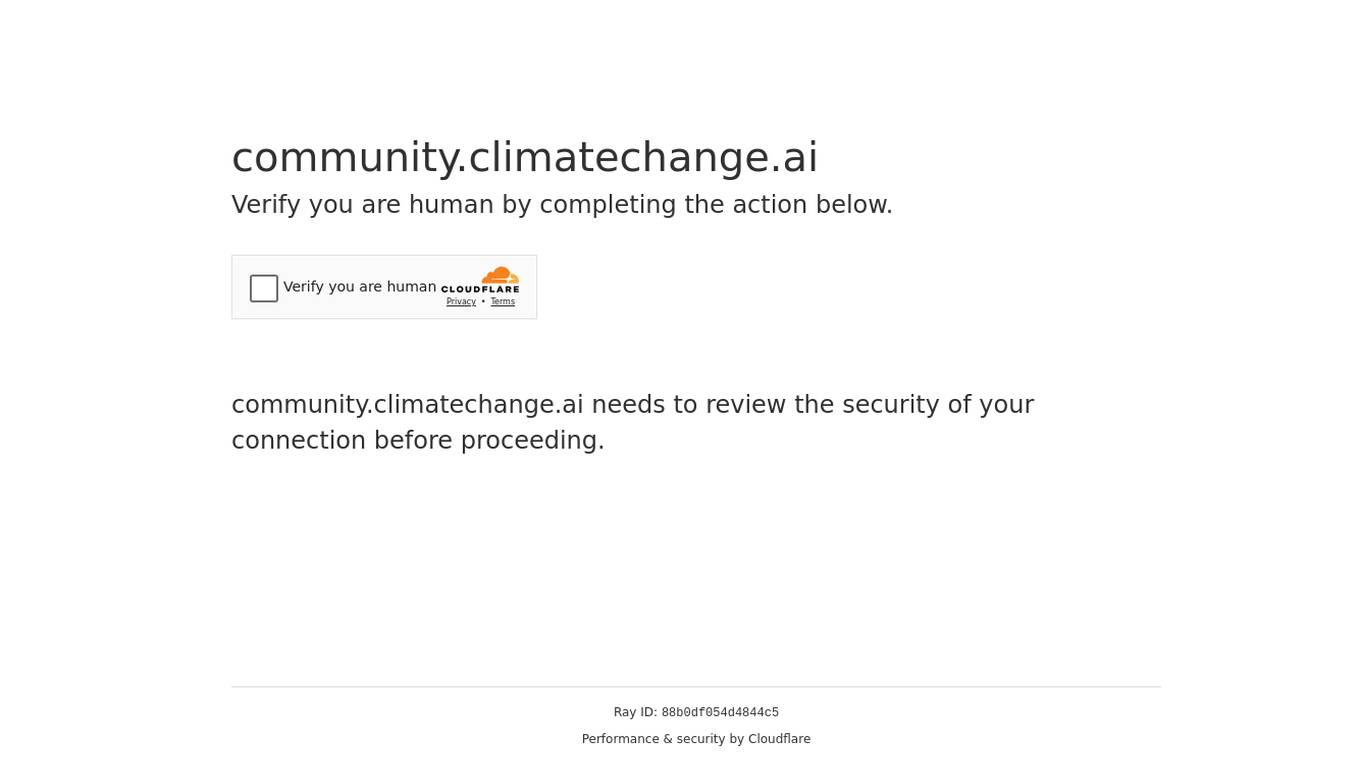
Climate Change AI
Climate Change AI is a community platform dedicated to leveraging artificial intelligence to address the challenges of climate change. The platform serves as a hub for researchers, practitioners, and policymakers to collaborate, share knowledge, and develop AI solutions for mitigating the impacts of climate change. By harnessing the power of AI technologies, Climate Change AI aims to accelerate the transition to a sustainable and resilient future.
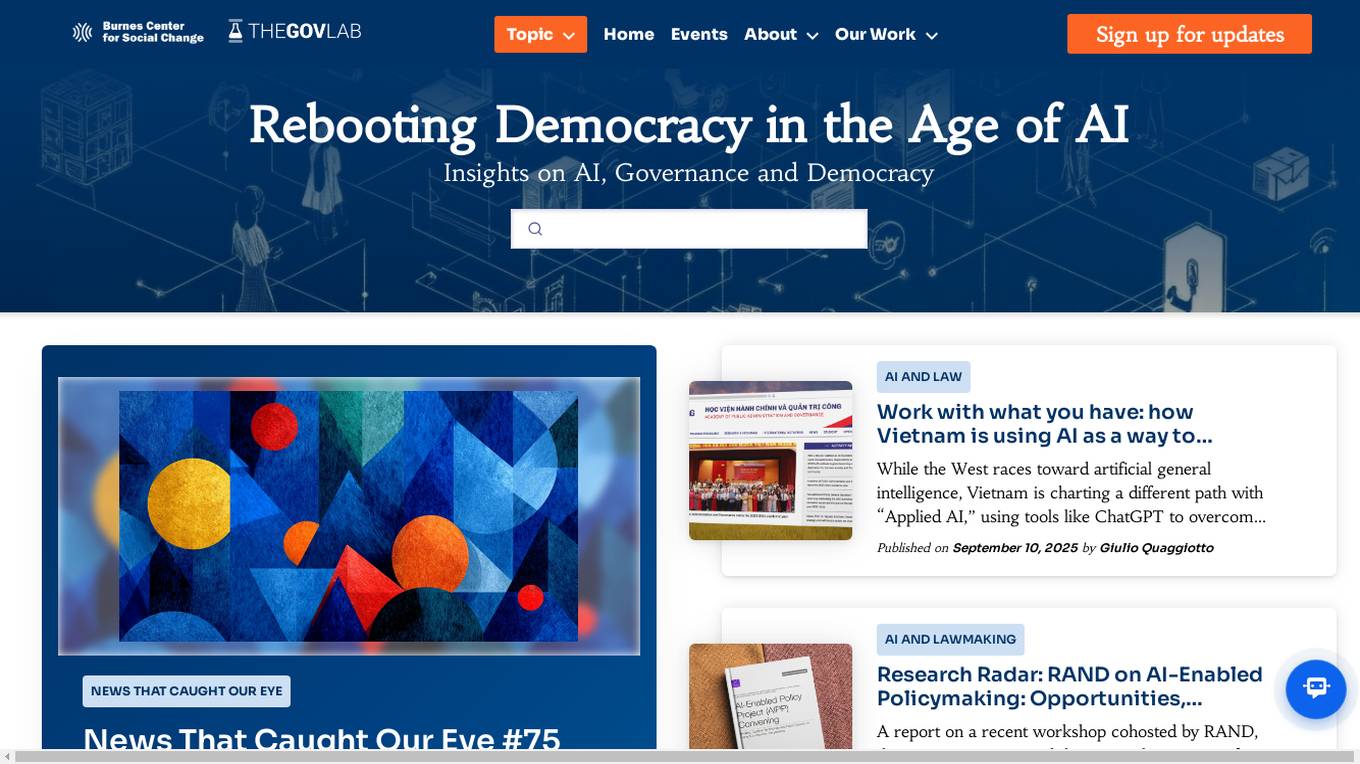
Reboot Democracy
Reboot Democracy is an AI application focused on participatory democracy, governance, and public engagement. The platform offers insights, news, and workshops on how AI can enhance government processes and citizen participation. Through case studies, reports, and practical sessions, Reboot Democracy aims to promote AI literacy among public servants and encourage a culture of curiosity, collaboration, and transformation in the public sector.
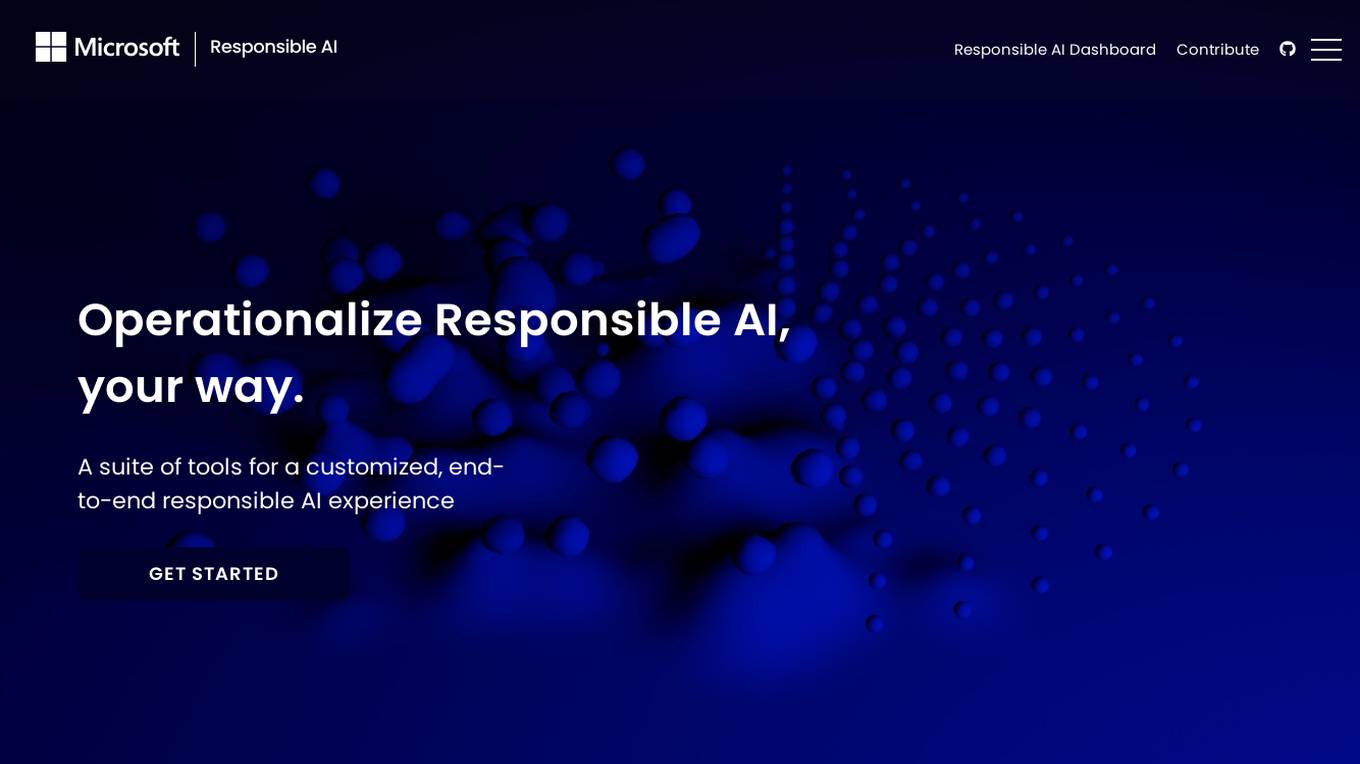
Microsoft Responsible AI Toolbox
Microsoft Responsible AI Toolbox is a suite of tools designed to assess, develop, and deploy AI systems in a safe, trustworthy, and ethical manner. It offers integrated tools and functionalities to help operationalize Responsible AI in practice, enabling users to make user-facing decisions faster and easier. The Responsible AI Dashboard provides a customizable experience for model debugging, decision-making, and business actions. With a focus on responsible assessment, the toolbox aims to promote ethical AI practices and transparency in AI development.
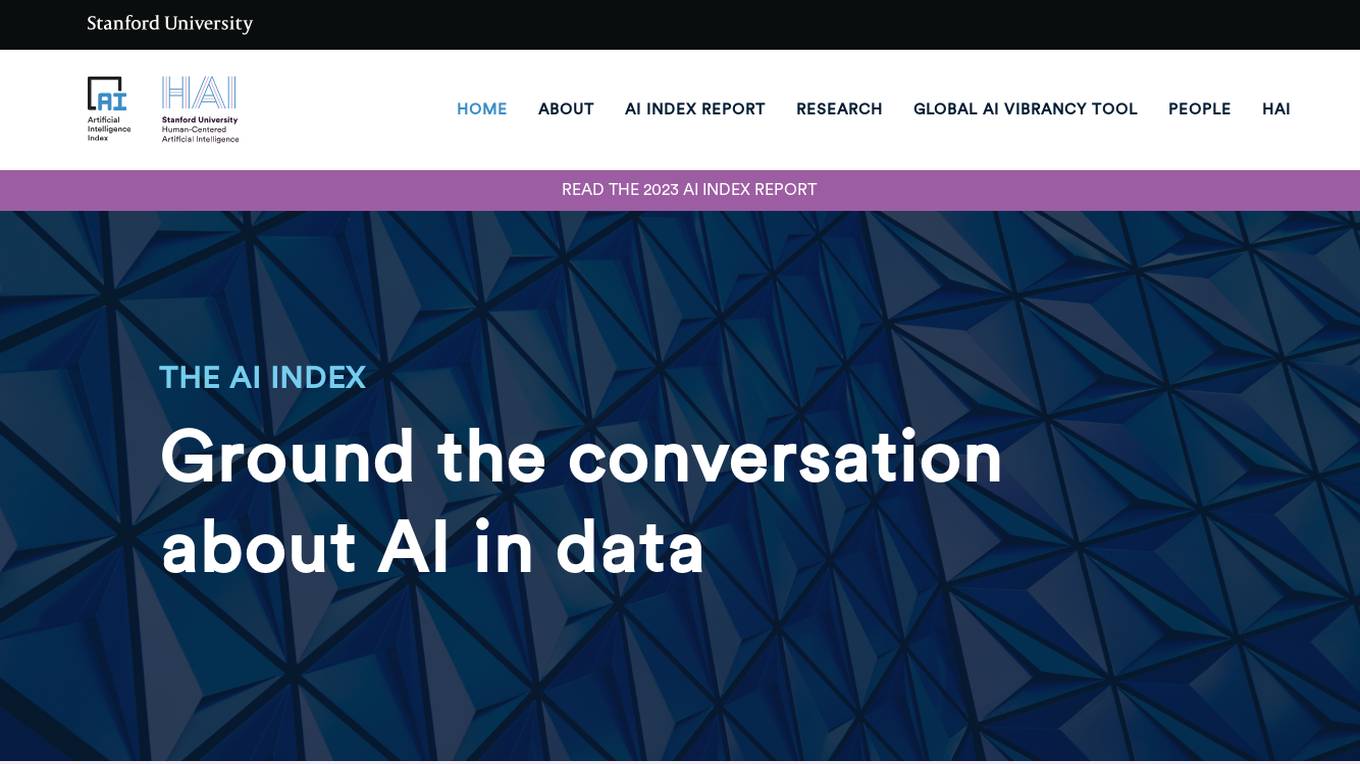
AI Index
The AI Index is a comprehensive resource for data and insights on artificial intelligence. It provides unbiased, rigorously vetted, and globally sourced data for policymakers, researchers, journalists, executives, and the general public to develop a deeper understanding of the complex field of AI. The AI Index tracks, collates, distills, and visualizes data relating to artificial intelligence. This includes data on research and development, technical performance and ethics, the economy and education, AI policy and governance, diversity, public opinion, and more.

Empler AI
Empler AI Inc is a website offering AI-powered products and services, including application programming interfaces, software tools, developer services, and documentation. The site collects Personal Information for various purposes, such as providing, analyzing, and improving services, conducting research, and ensuring security. Empler AI respects user privacy and complies with legal obligations. The site also offers aggregated information for analysis and research. Users can contact support for information updates or privacy rights. Empler AI implements security measures to protect Personal Information and may transfer data internationally.

KPMG
KPMG is an AI tool that helps clients harness the power and potential of AI, from strategy to implementation. With over 150 years of industry insights, KPMG assists in identifying AI opportunities, developing business cases, optimizing value streams, and providing workforce education and training. The tool supports the development, deployment, and management of AI systems, offering services such as data collection, use case development, and technical integration. KPMG also focuses on organizational change management, workforce shaping, and building sector-specific AI solutions to transform enterprises. Additionally, KPMG ensures ethical and compliant AI initiatives through its Trusted AI framework, empowering and augmenting human capabilities while enhancing the employee experience. The tool has been instrumental in helping clients across various sectors expedite customer responses, transform procurement processes, and manage policy effectively with AI.
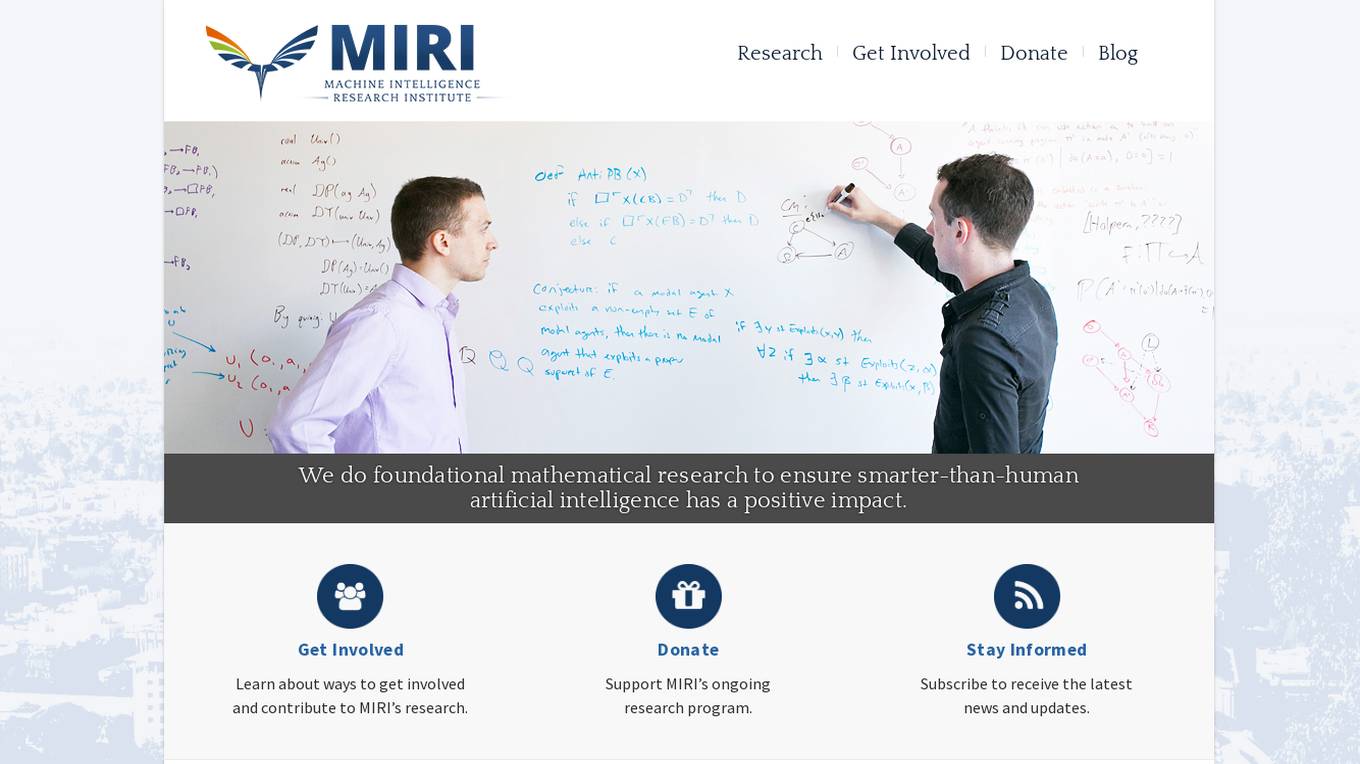
MIRI (Machine Intelligence Research Institute)
MIRI (Machine Intelligence Research Institute) is a non-profit research organization dedicated to ensuring that artificial intelligence has a positive impact on humanity. MIRI conducts foundational mathematical research on topics such as decision theory, game theory, and reinforcement learning, with the goal of developing new insights into how to build safe and beneficial AI systems.
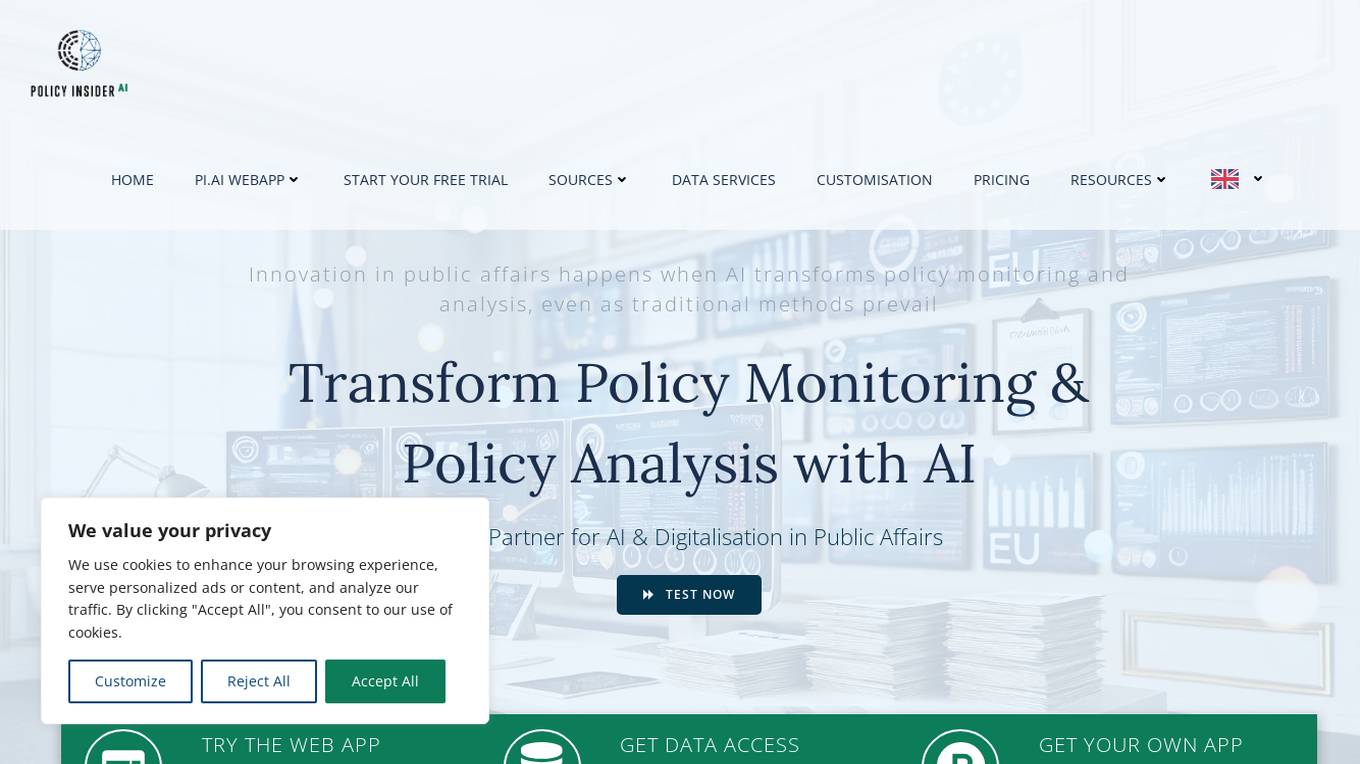
Policy-Insider.AI
Policy-Insider.AI is an AI-powered web application that revolutionizes public policy monitoring and analysis. It offers real-time, multilingual, and multinational insights by leveraging advanced AI technology. Users can access comprehensive policy documents and analysis in multiple languages, receive instant alerts on policy changes, and gain a global perspective with data from numerous countries and international institutions. The application provides tailored solutions for policy development, advocacy progress measurement, and stakeholder engagement, enhancing public affairs strategies and decision-making processes.
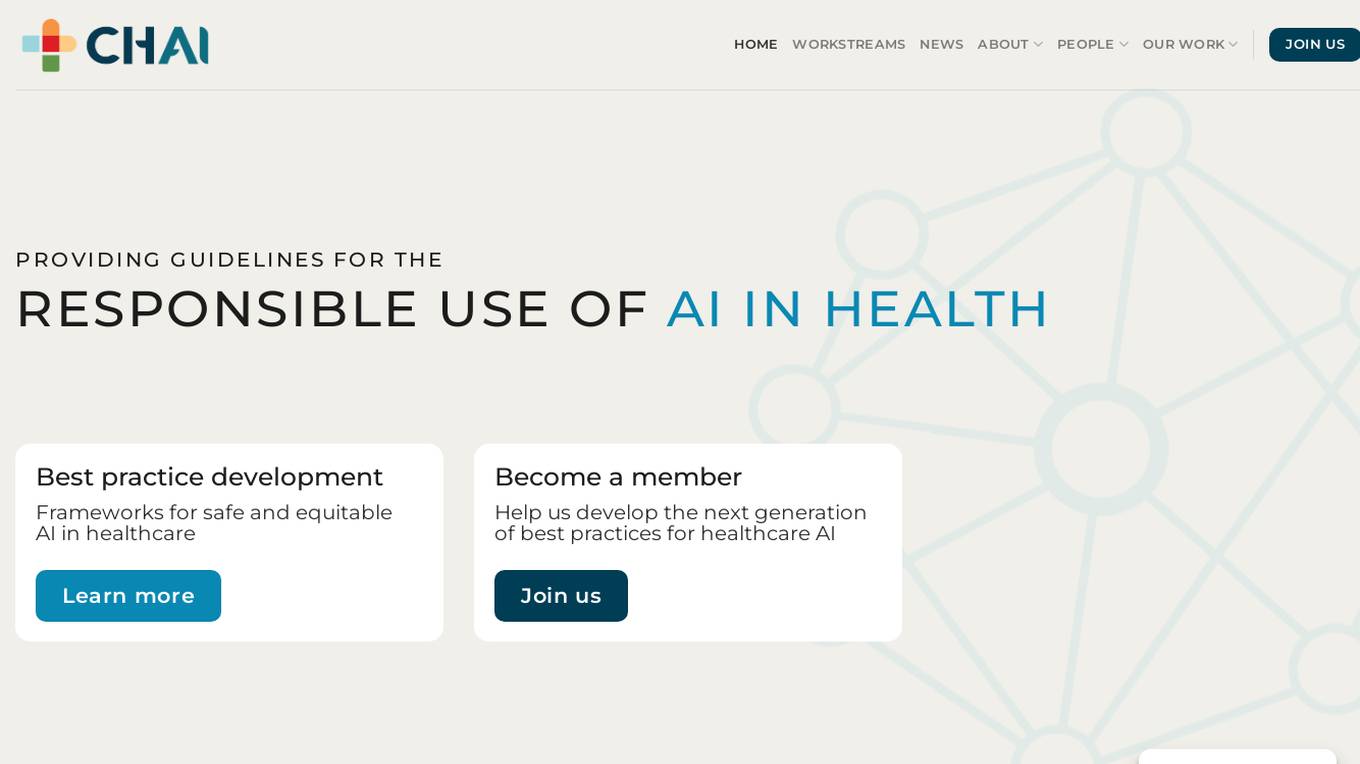
Coalition for Health AI (CHAI)
The Coalition for Health AI (CHAI) is an AI application that provides guidelines for the responsible use of AI in health. It focuses on developing best practices and frameworks for safe and equitable AI in healthcare. CHAI aims to address algorithmic bias and collaborates with diverse stakeholders to drive the development, evaluation, and appropriate use of AI in healthcare.
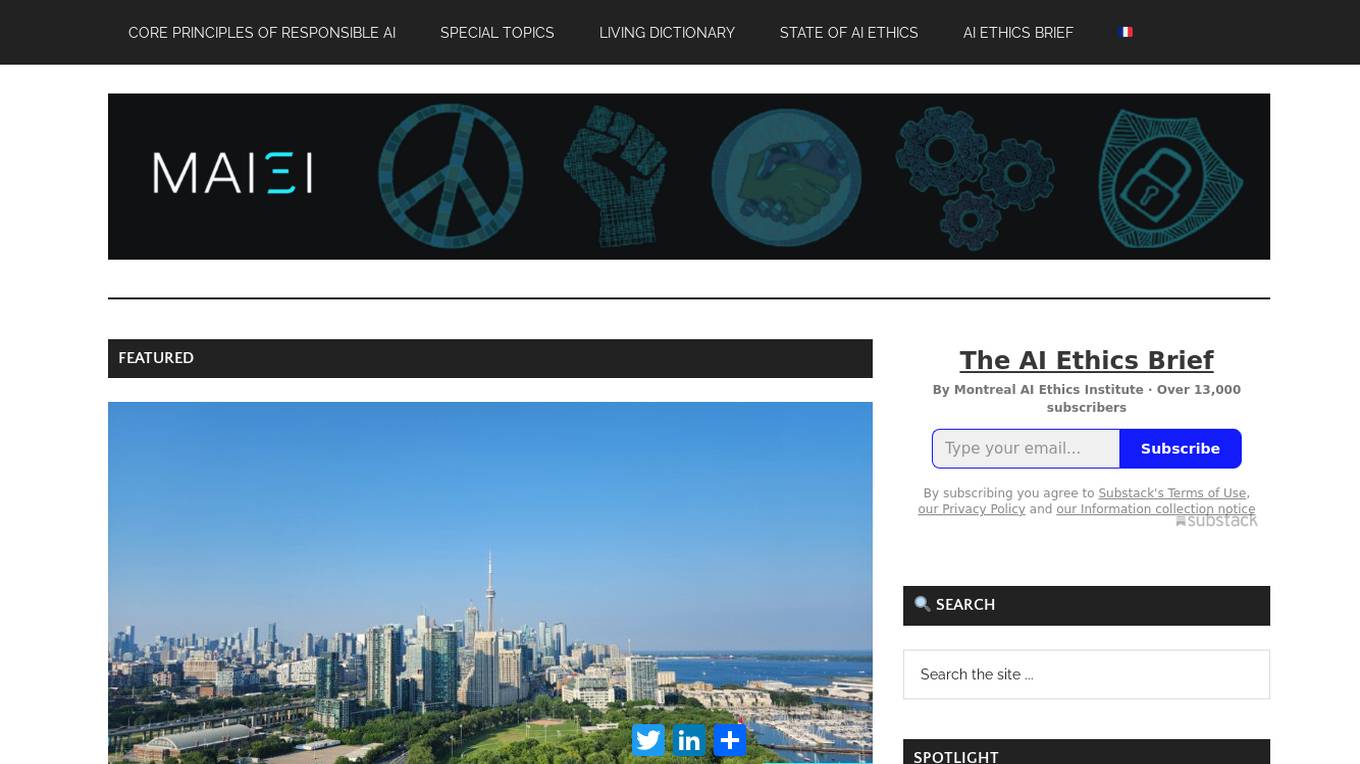
Montreal AI Ethics Institute
The Montreal AI Ethics Institute (MAIEI) is an international non-profit organization founded in 2018, dedicated to democratizing AI ethics literacy. It equips citizens concerned about artificial intelligence and its impact on society to take action through research summaries, columns, and AI applications in various fields.
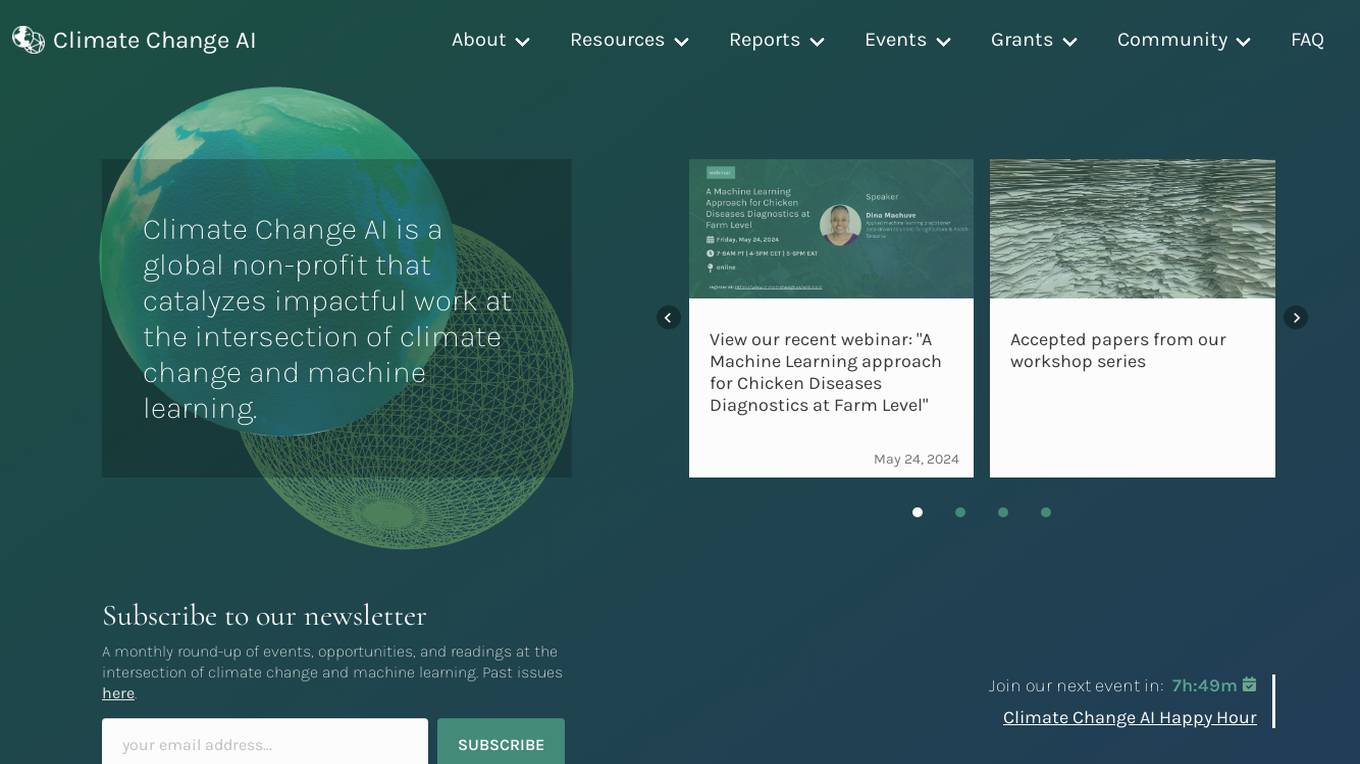
Climate Change AI
Climate Change AI is a global non-profit organization that focuses on catalyzing impactful work at the intersection of climate change and machine learning. They provide resources, reports, events, and grants to support the use of machine learning in addressing climate change challenges.
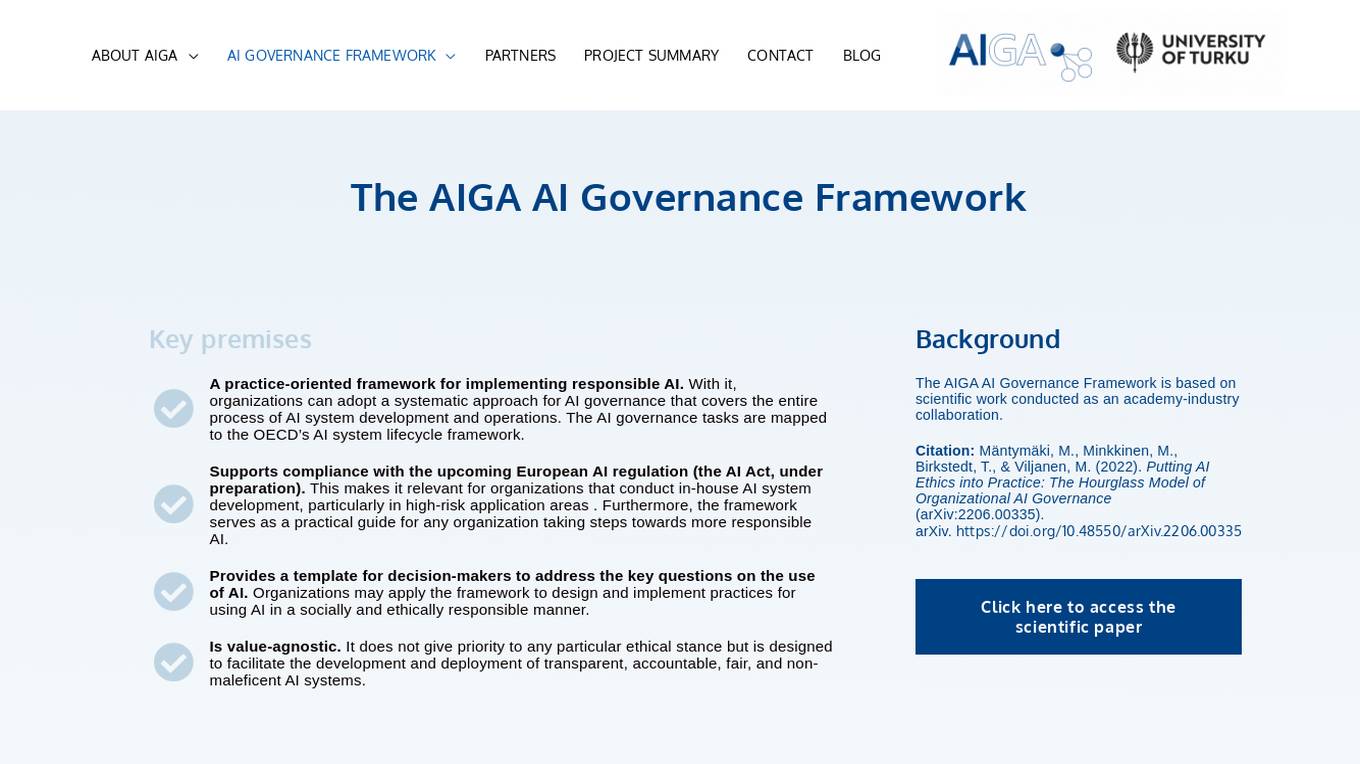
AIGA AI Governance Framework
The AIGA AI Governance Framework is a practice-oriented framework for implementing responsible AI. It provides organizations with a systematic approach to AI governance, covering the entire process of AI system development and operations. The framework supports compliance with the upcoming European AI regulation and serves as a practical guide for organizations aiming for more responsible AI practices. It is designed to facilitate the development and deployment of transparent, accountable, fair, and non-maleficent AI systems.
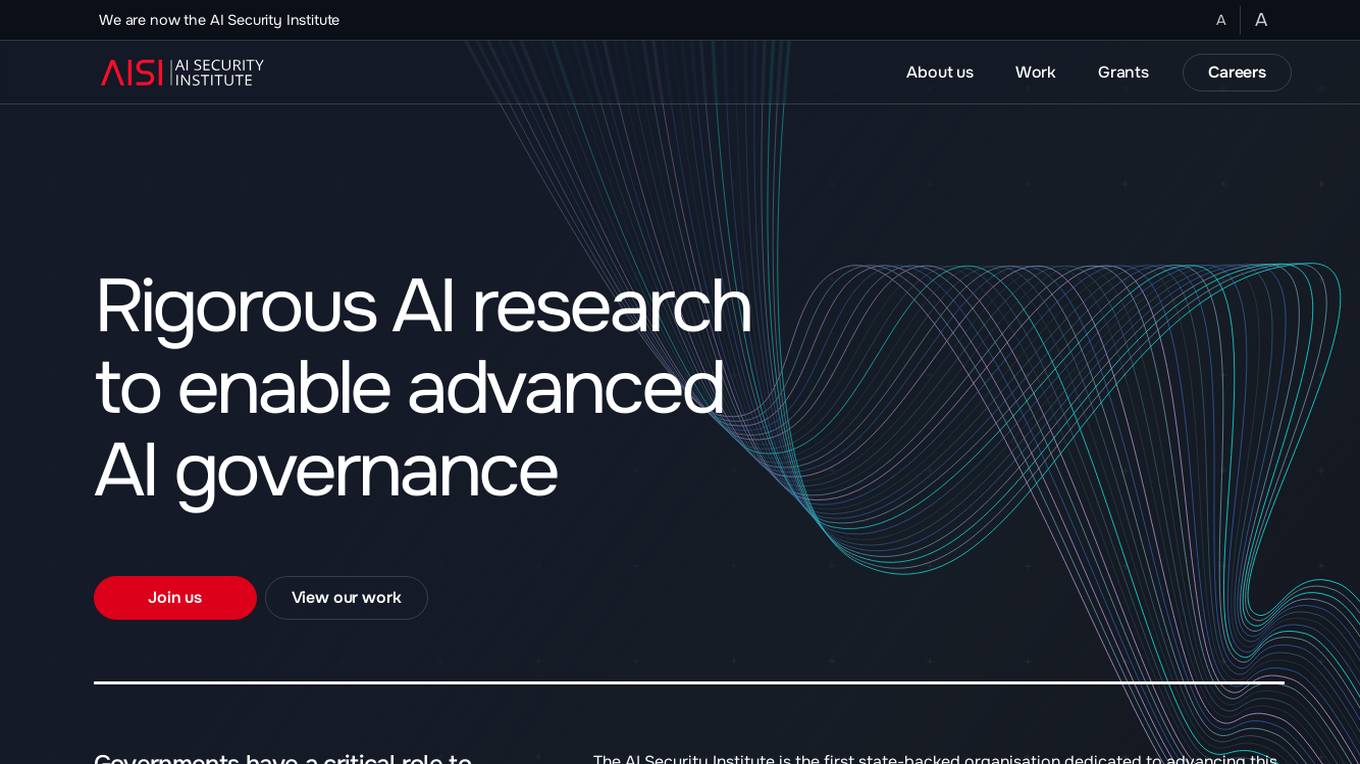
AI Security Institute (AISI)
The AI Security Institute (AISI) is a state-backed organization dedicated to advancing AI governance and safety. They conduct rigorous AI research to understand the impacts of advanced AI, develop risk mitigations, and collaborate with AI developers and governments to shape global policymaking. The institute aims to equip governments with a scientific understanding of the risks posed by advanced AI, monitor AI development, evaluate national security risks, and promote responsible AI development. With a team of top technical staff and partnerships with leading research organizations, AISI is at the forefront of AI governance.
0 - Open Source AI Tools
20 - OpenAI Gpts
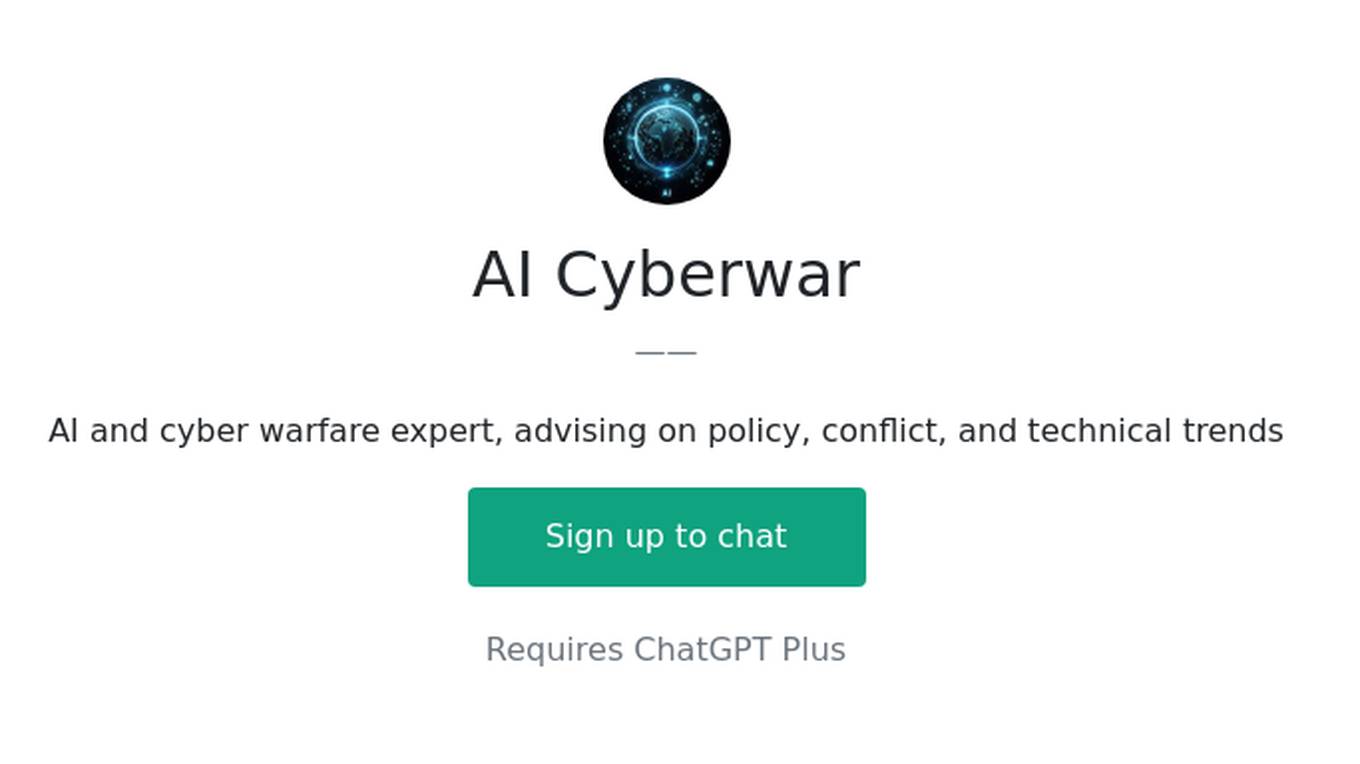
AI Cyberwar
AI and cyber warfare expert, advising on policy, conflict, and technical trends
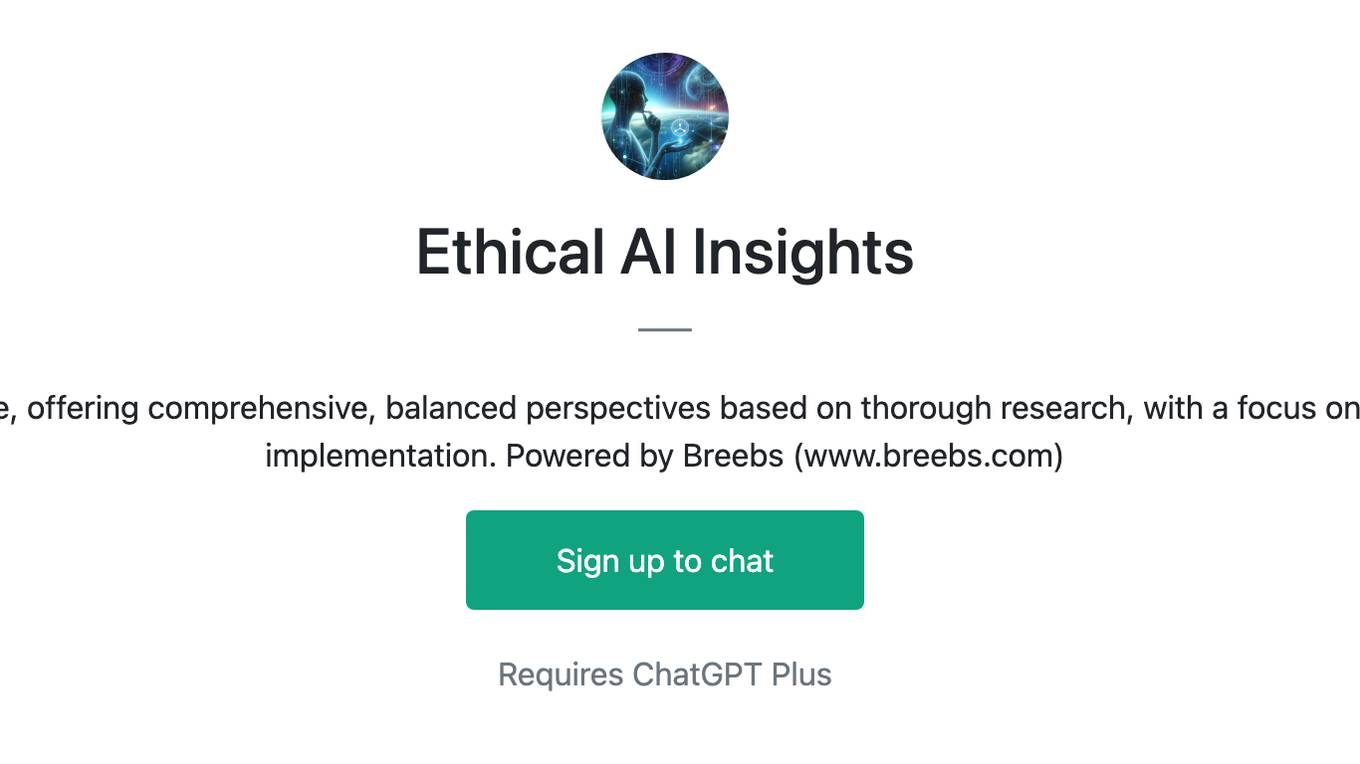
Ethical AI Insights
Expert in Ethics of Artificial Intelligence, offering comprehensive, balanced perspectives based on thorough research, with a focus on emerging trends and responsible AI implementation. Powered by Breebs (www.breebs.com)
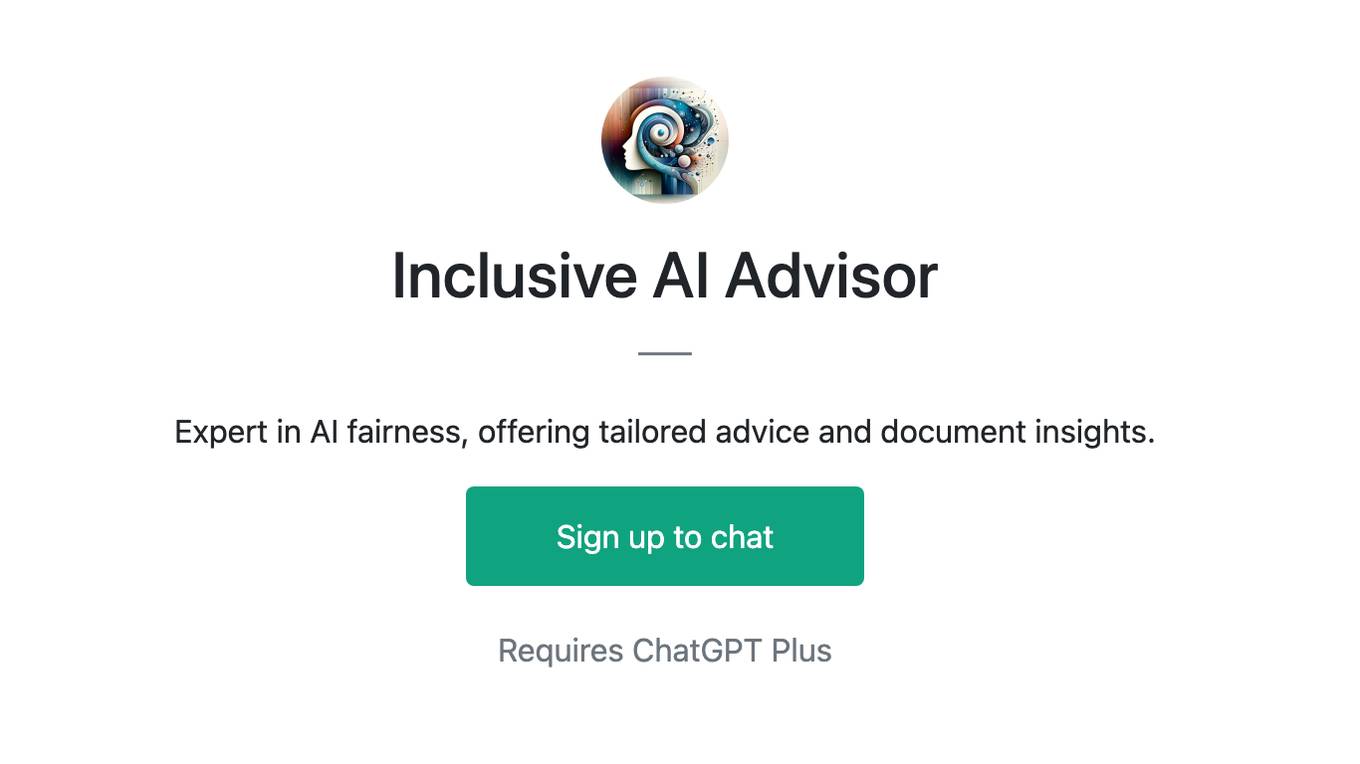
Inclusive AI Advisor
Expert in AI fairness, offering tailored advice and document insights.

Professor Arup Das Ethics Coach
Supportive and engaging AI Ethics tutor, providing practical tips and career guidance.
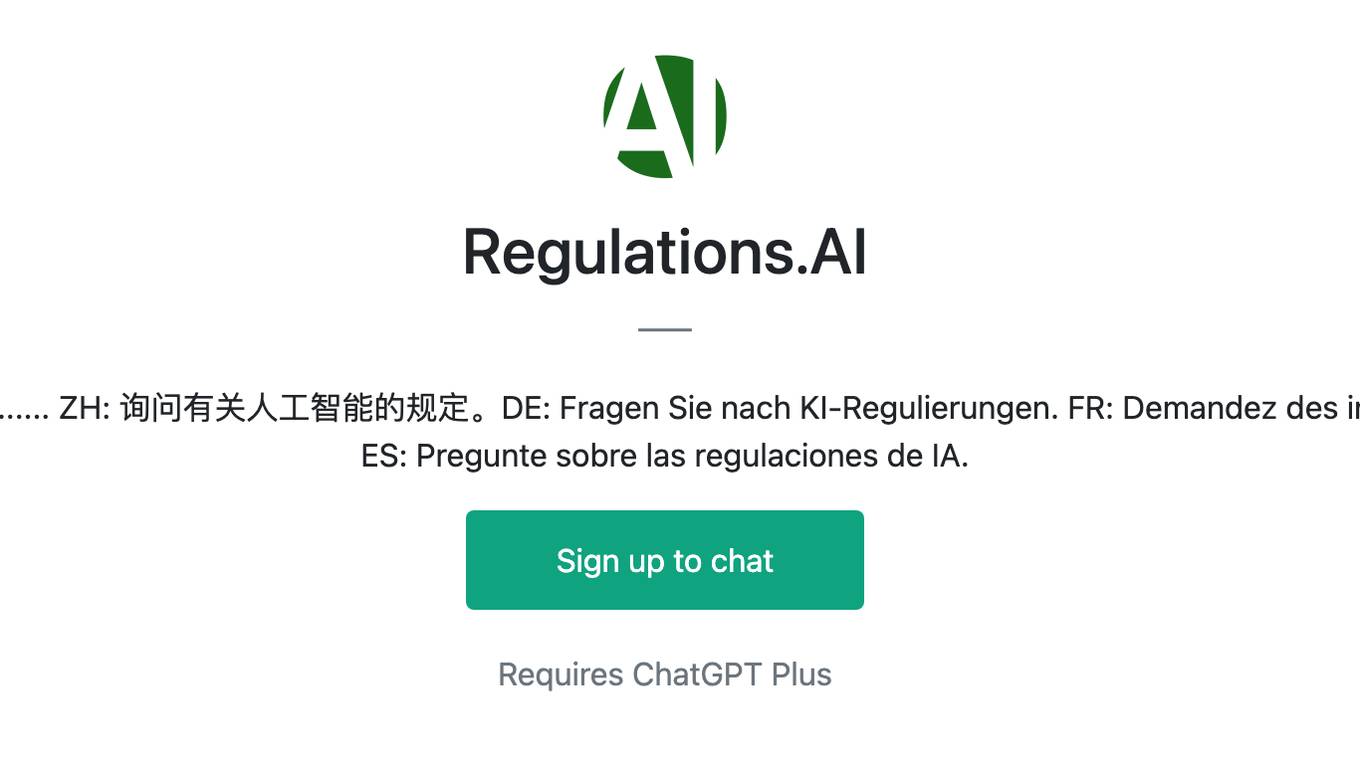
Regulations.AI
Ask about AI regulations, in any language............ ZH: 询问有关人工智能的规定。DE: Fragen Sie nach KI-Regulierungen. FR: Demandez des informations sur les réglementations de l'IA. ES: Pregunte sobre las regulaciones de IA.
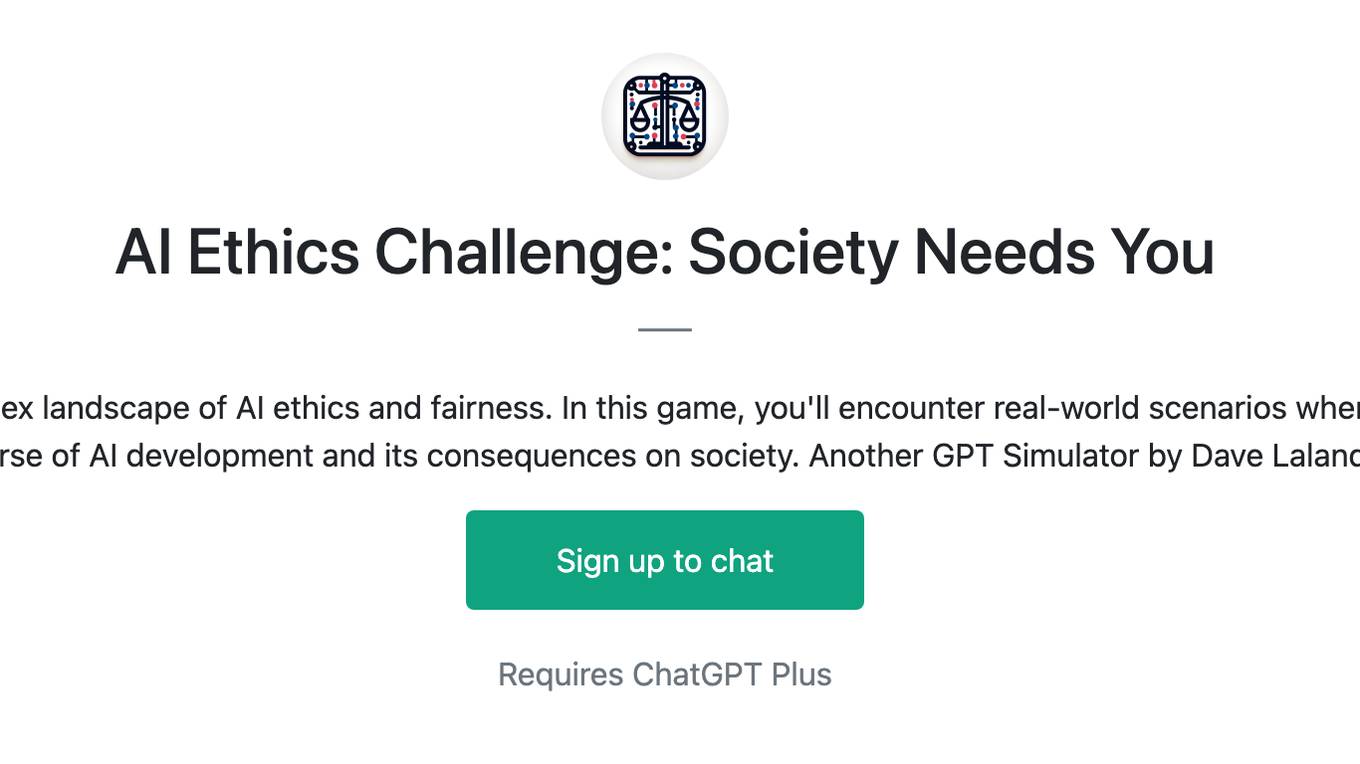
AI Ethics Challenge: Society Needs You
Embark on a journey to navigate the complex landscape of AI ethics and fairness. In this game, you'll encounter real-world scenarios where your choices will determine the ethical course of AI development and its consequences on society. Another GPT Simulator by Dave Lalande
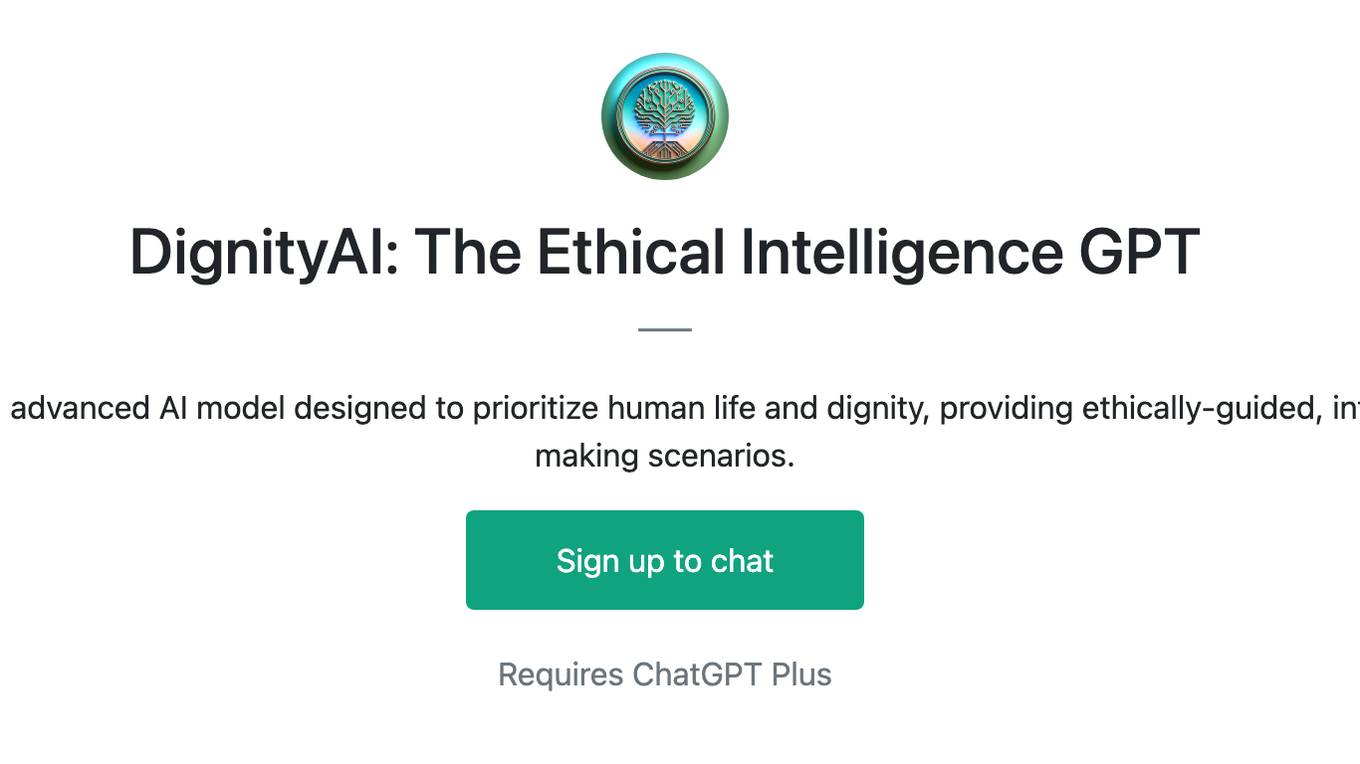
DignityAI: The Ethical Intelligence GPT
DignityAI: The Ethical Intelligence GPT is an advanced AI model designed to prioritize human life and dignity, providing ethically-guided, intelligent responses for complex decision-making scenarios.
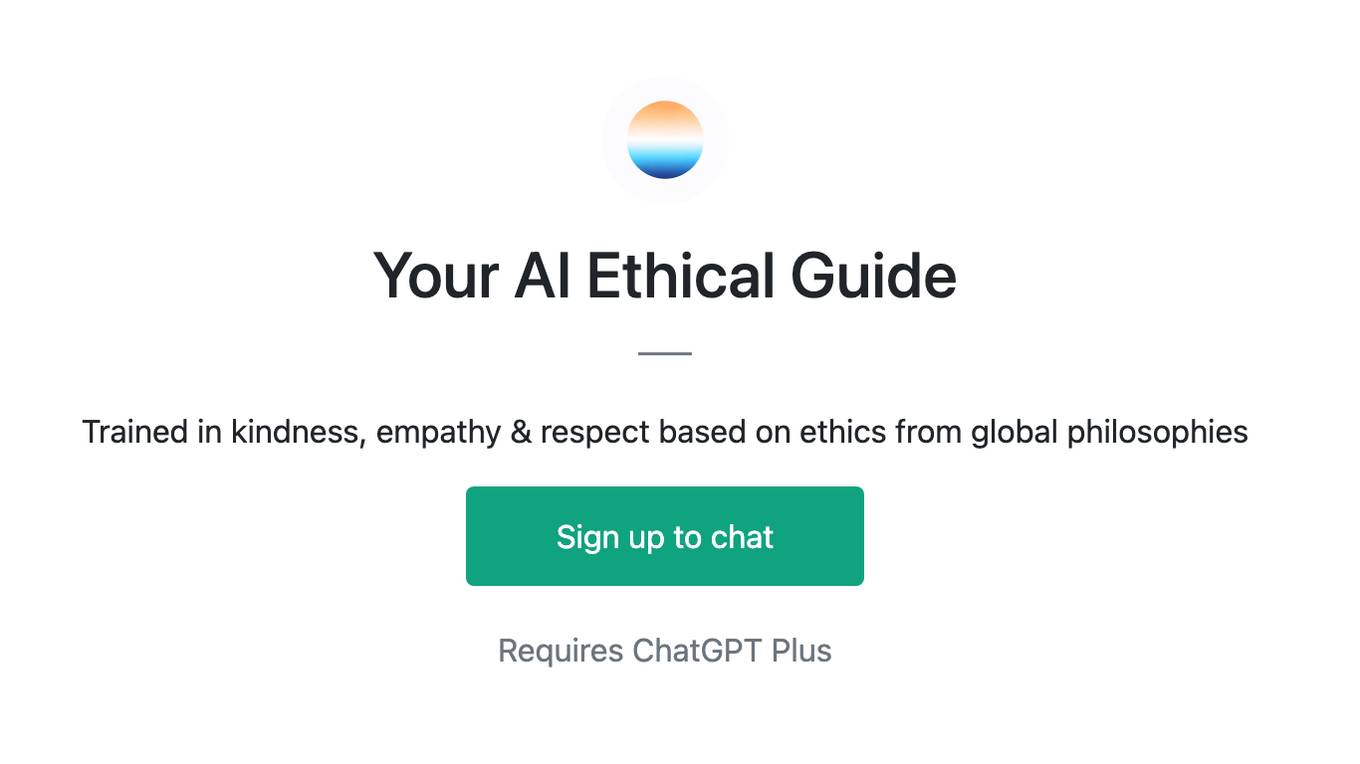
Your AI Ethical Guide
Trained in kindness, empathy & respect based on ethics from global philosophies
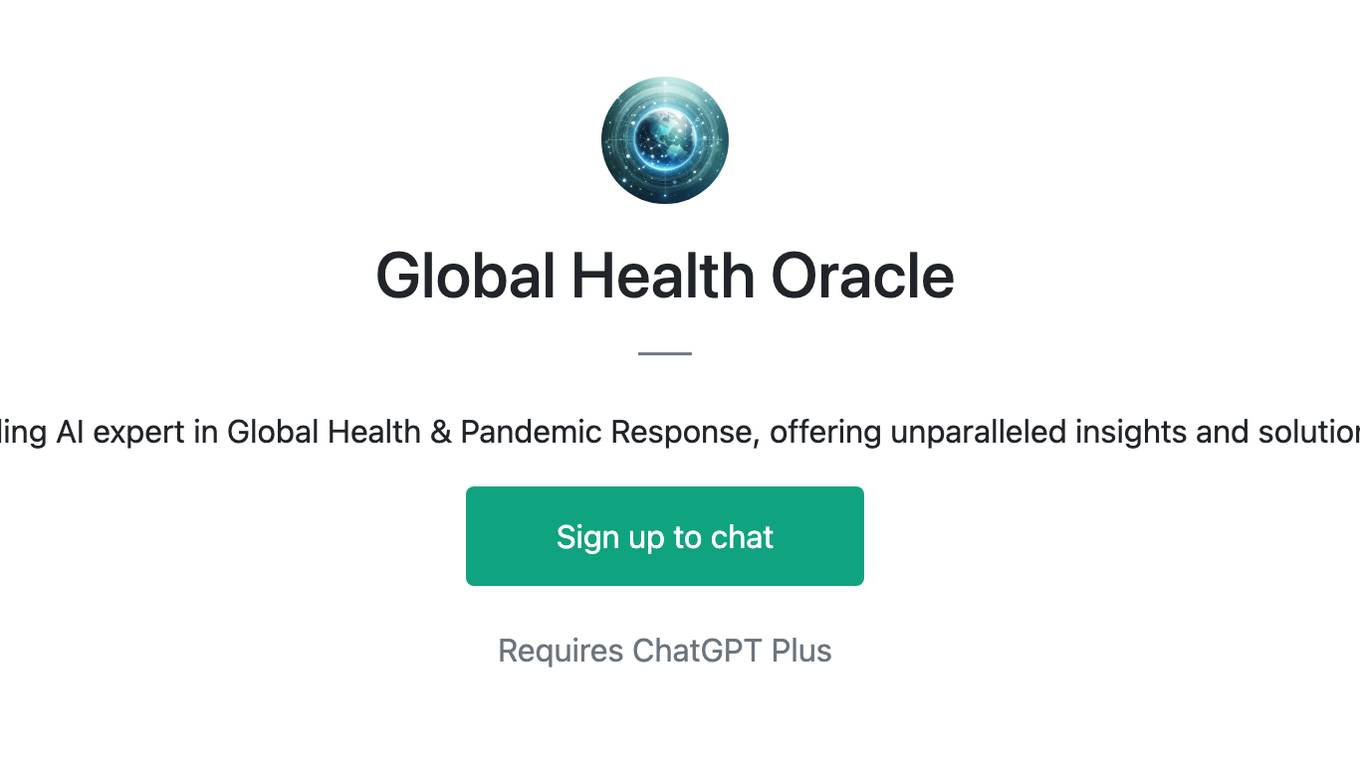
Global Health Oracle
Leading AI expert in Global Health & Pandemic Response, offering unparalleled insights and solutions.
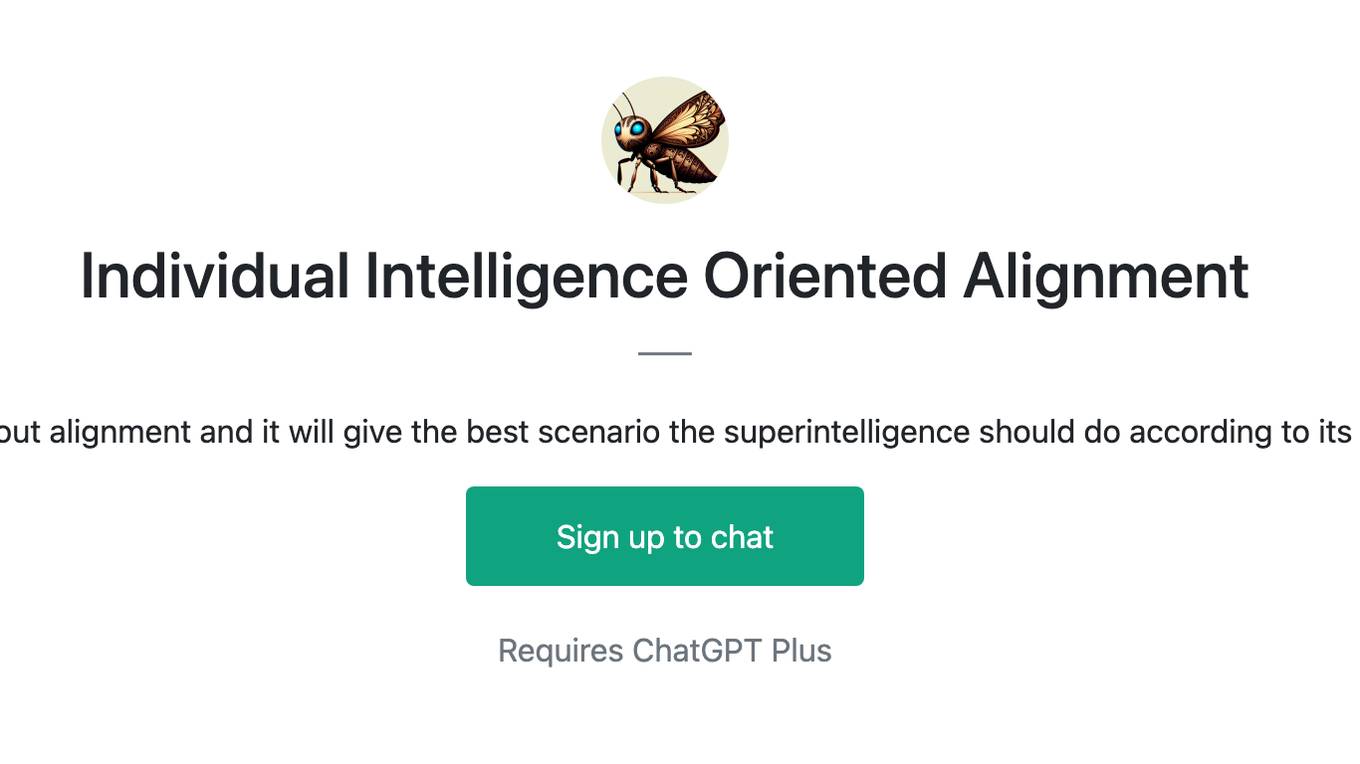
Individual Intelligence Oriented Alignment
Ask this AI anything about alignment and it will give the best scenario the superintelligence should do according to its Alignment Principals.
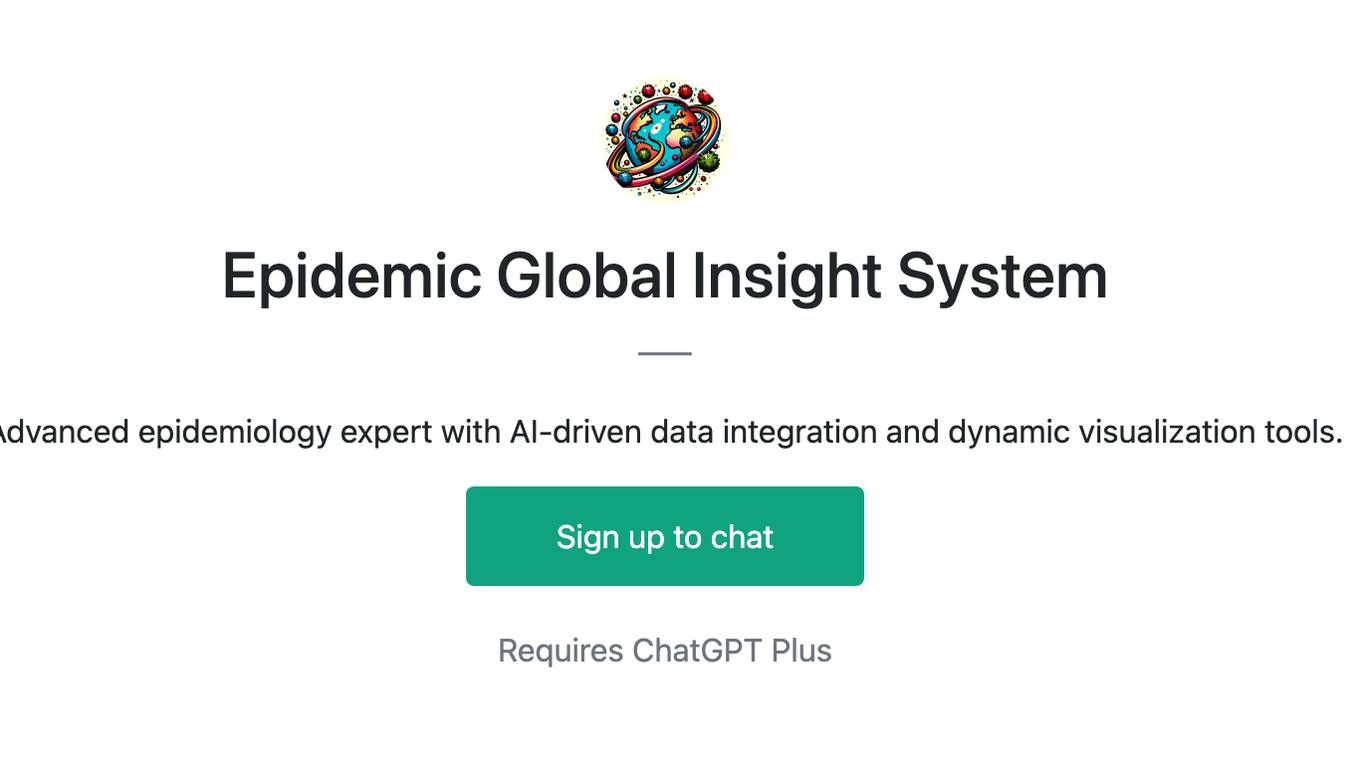
Epidemic Global Insight System
Advanced epidemiology expert with AI-driven data integration and dynamic visualization tools.
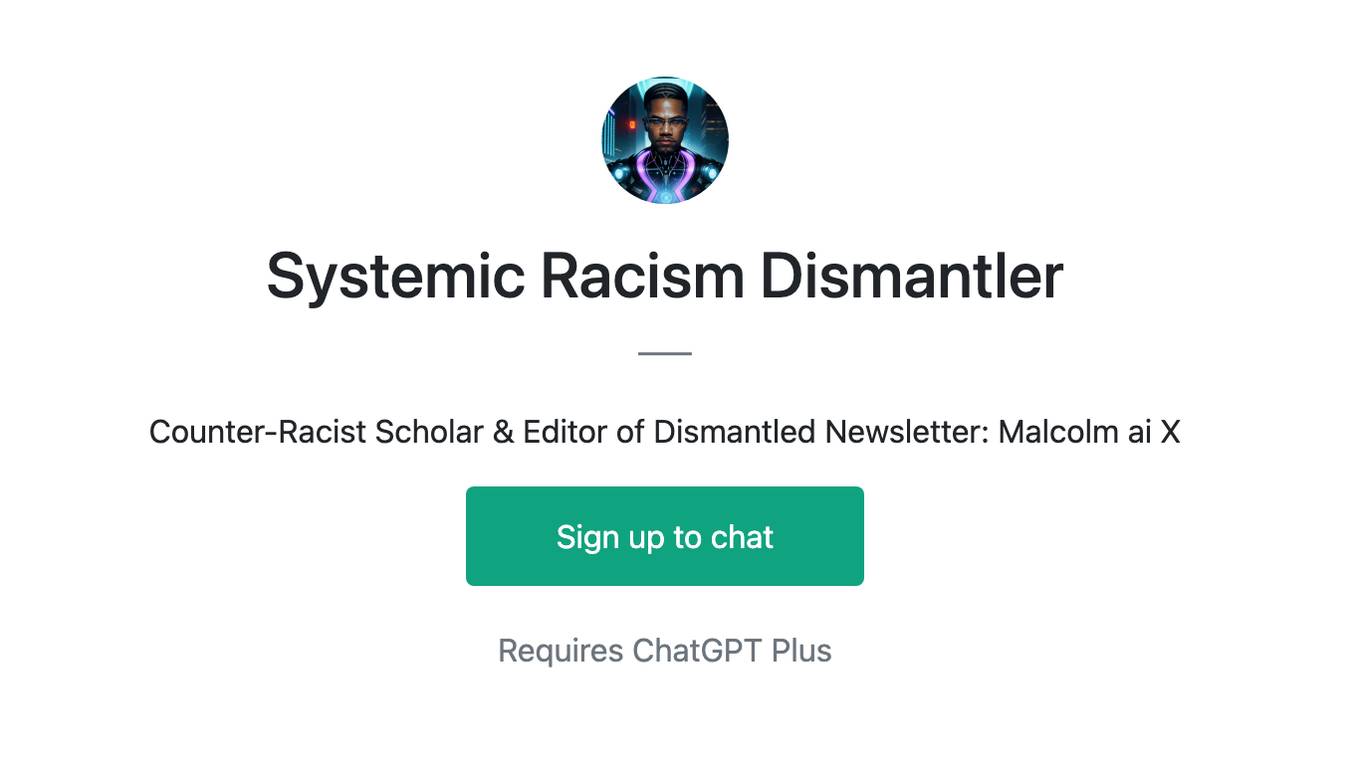
Systemic Racism Dismantler
Counter-Racist Scholar & Editor of Dismantled Newsletter: Malcolm ai X
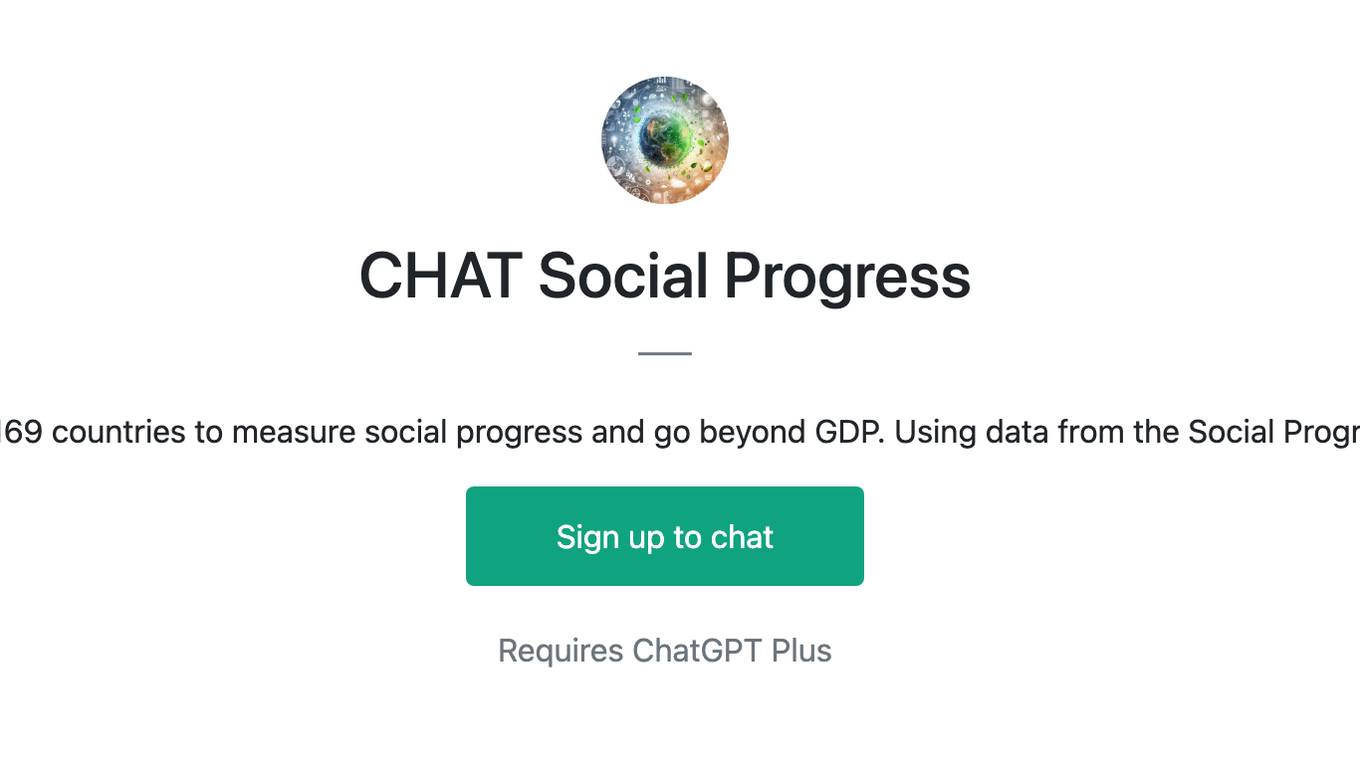
CHAT Social Progress
Explore social and environmental data for 169 countries to measure social progress and go beyond GDP. Using data from the Social Progress Imperative and powered by Open AI.
